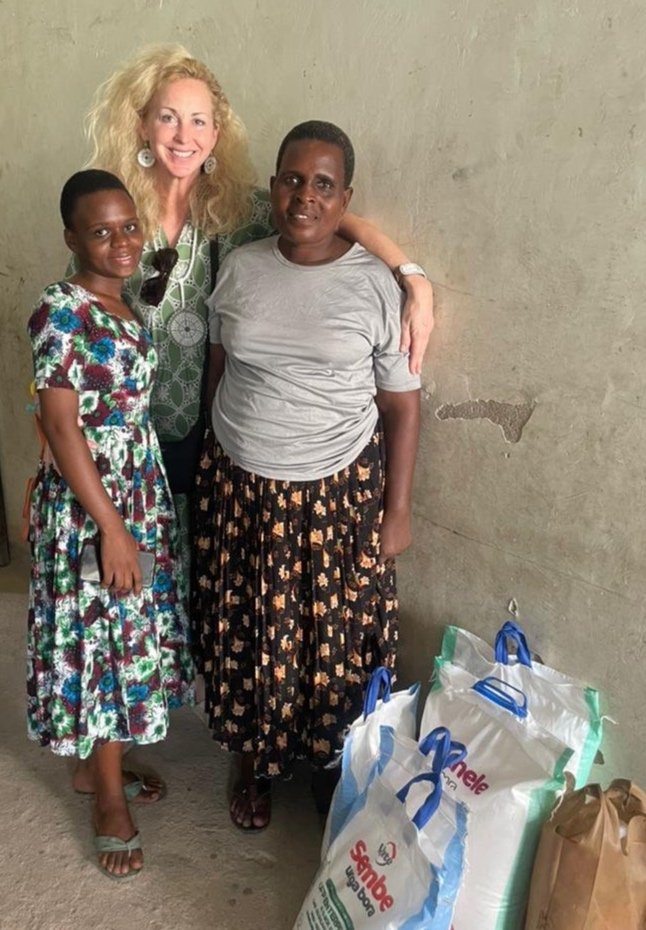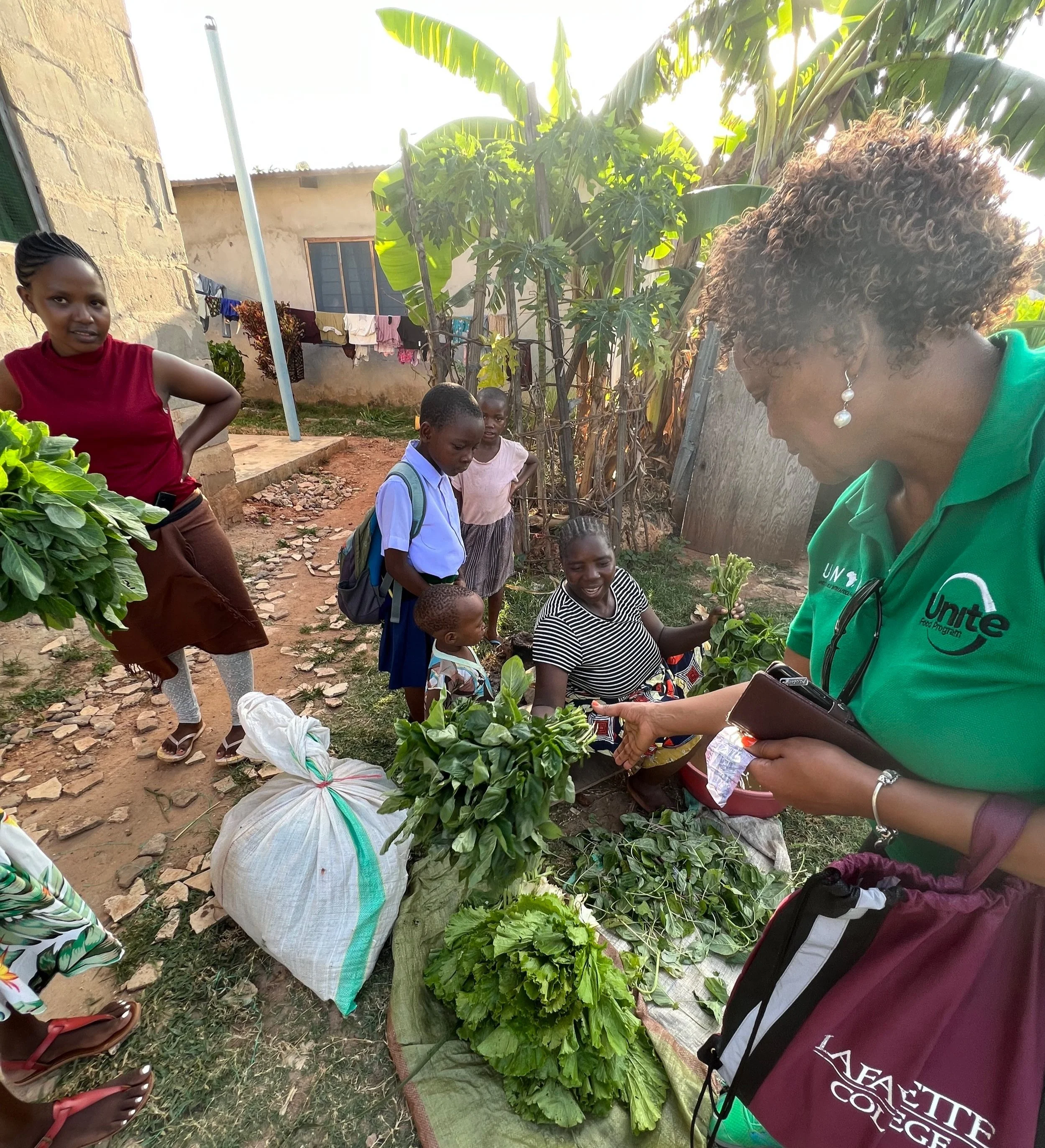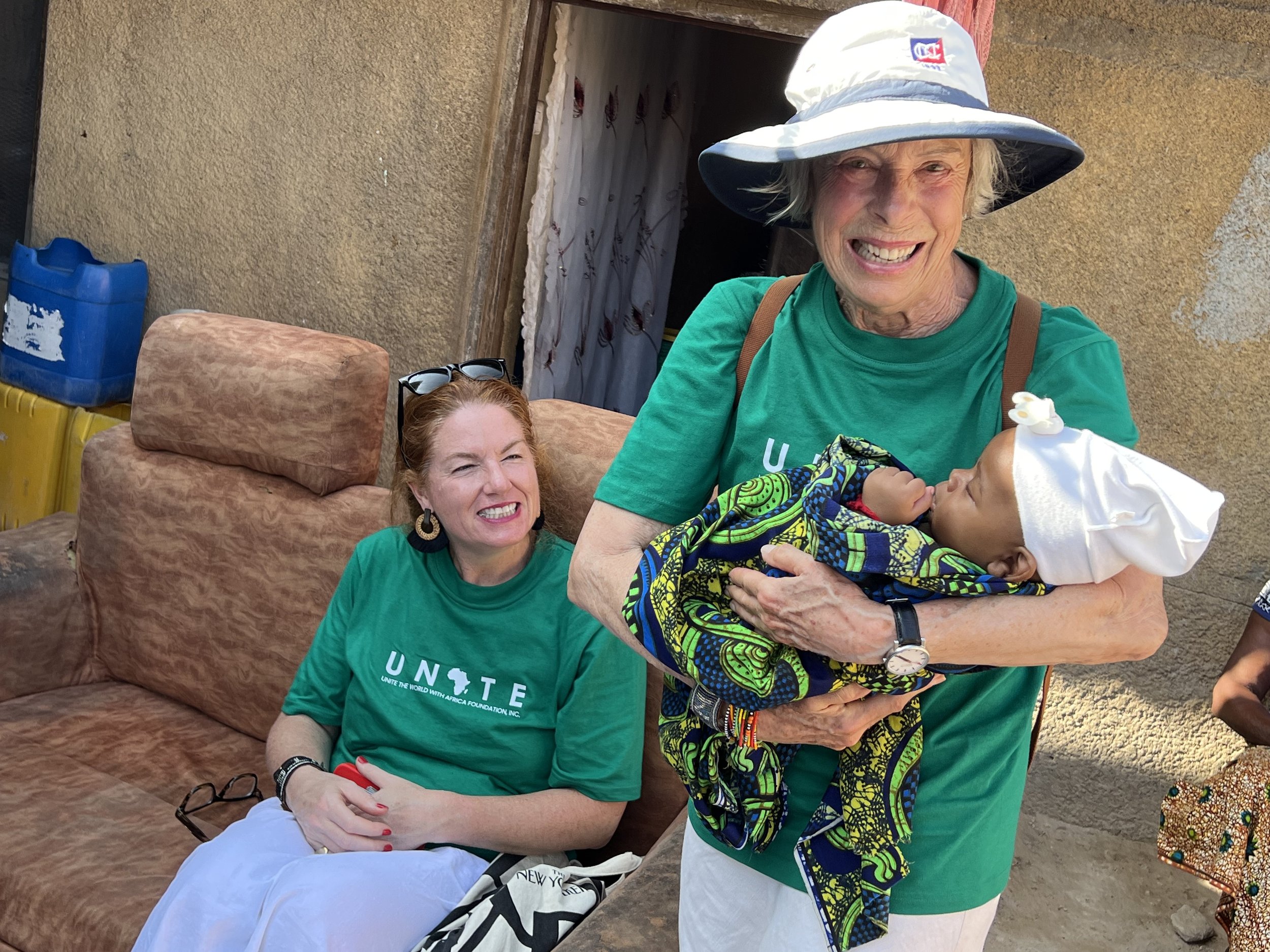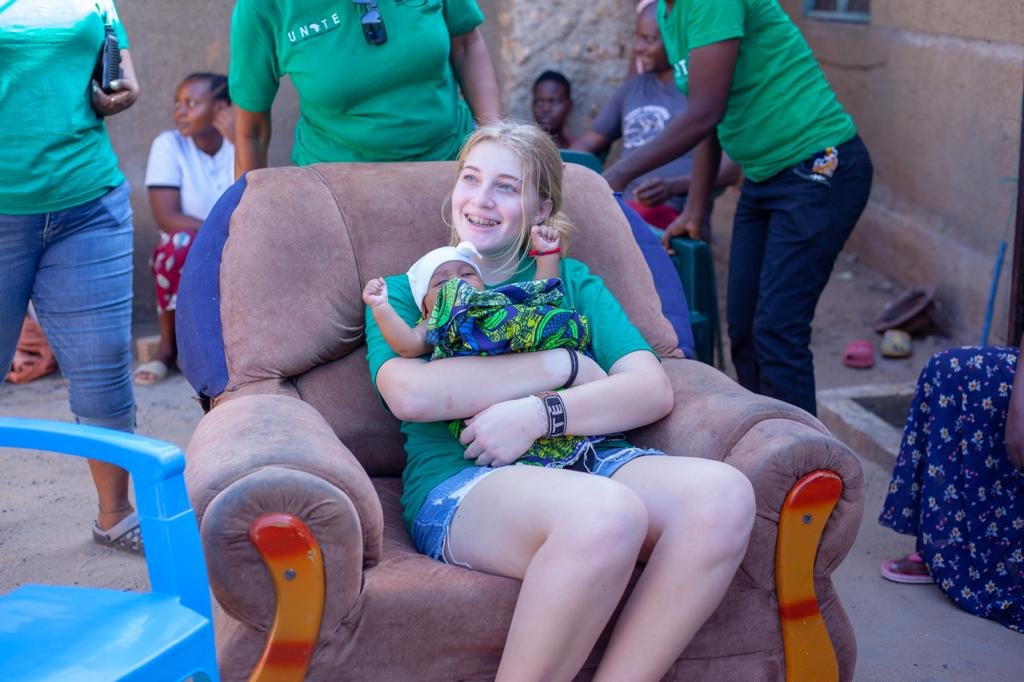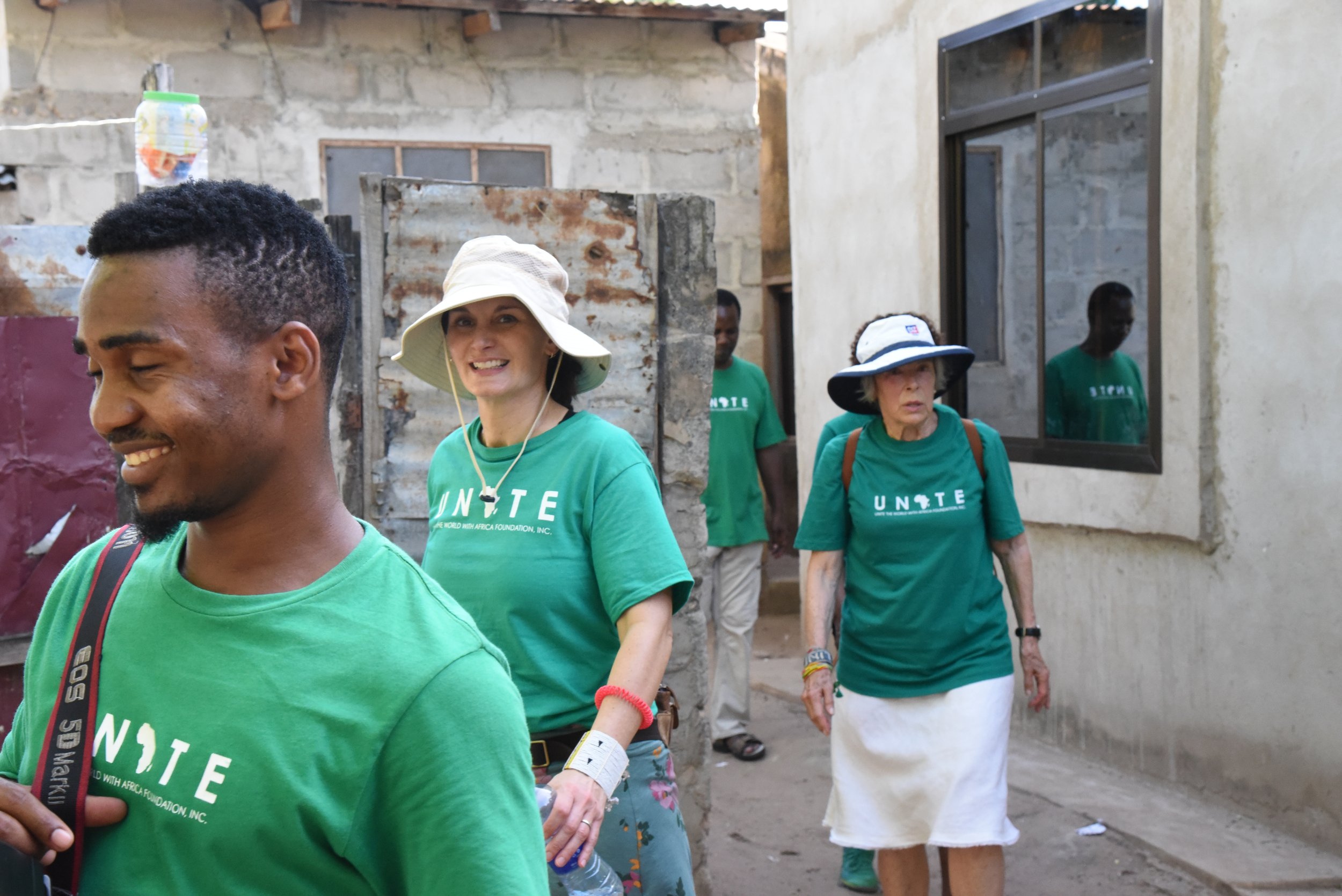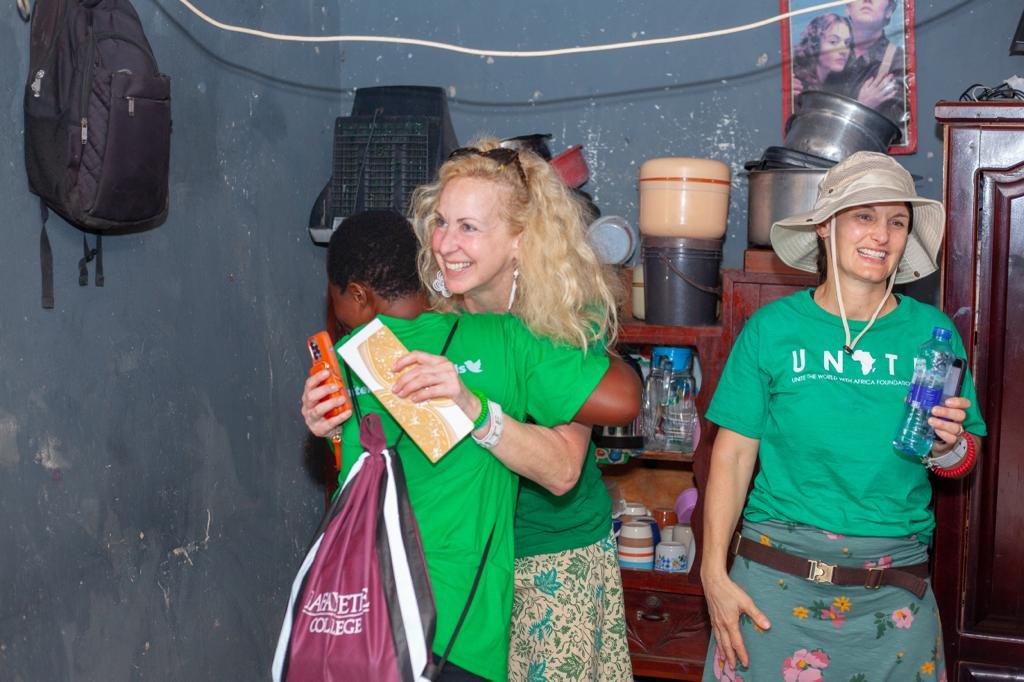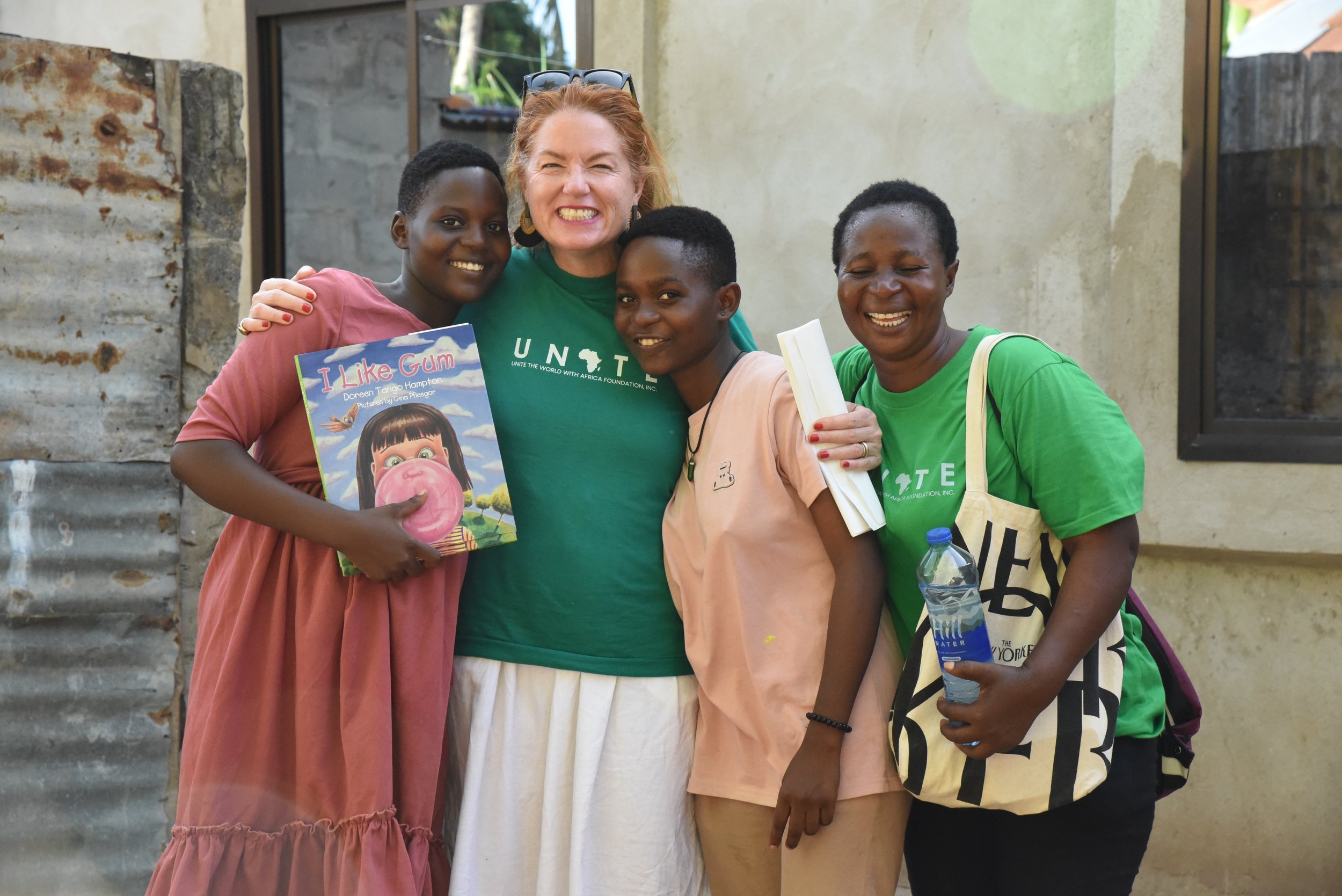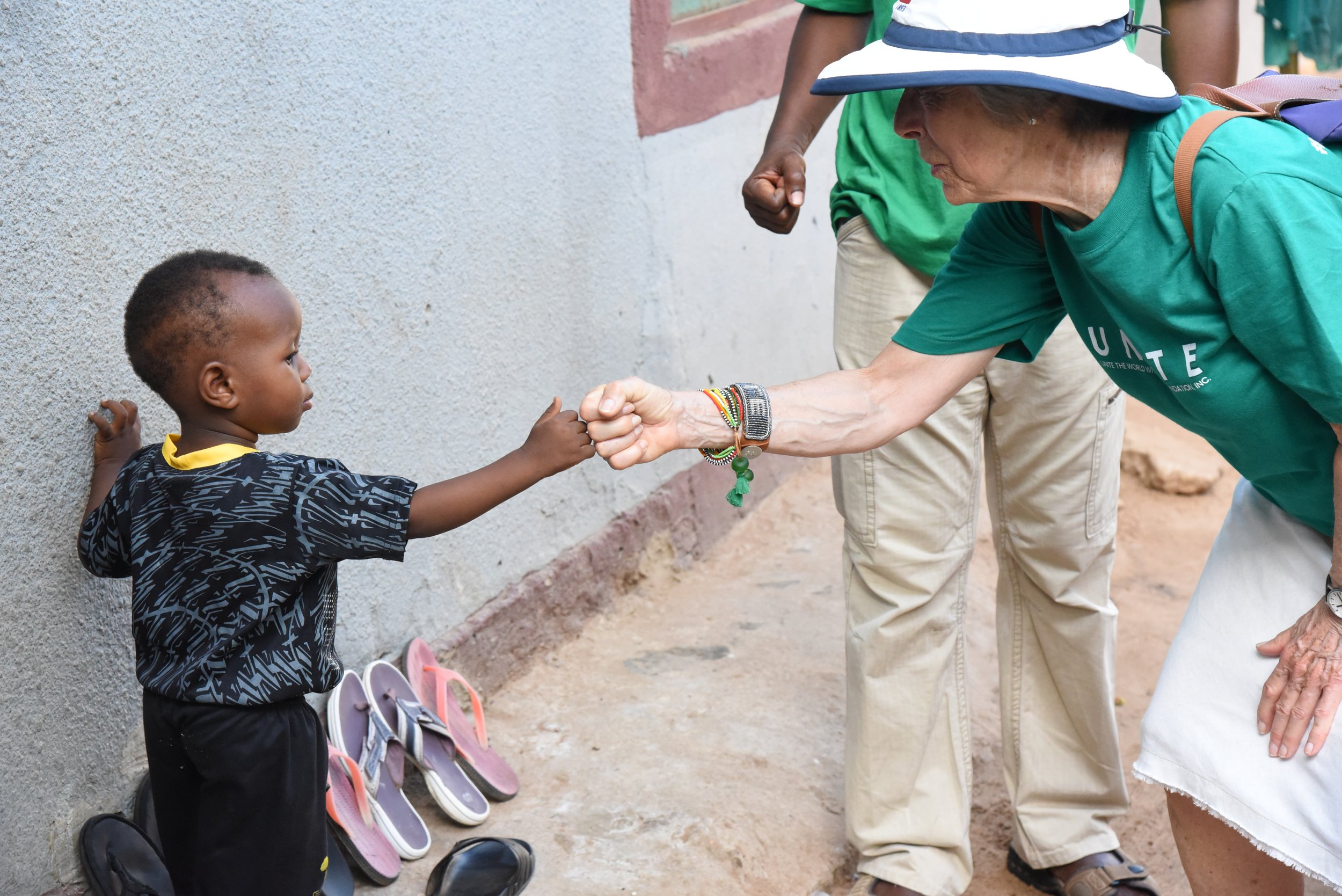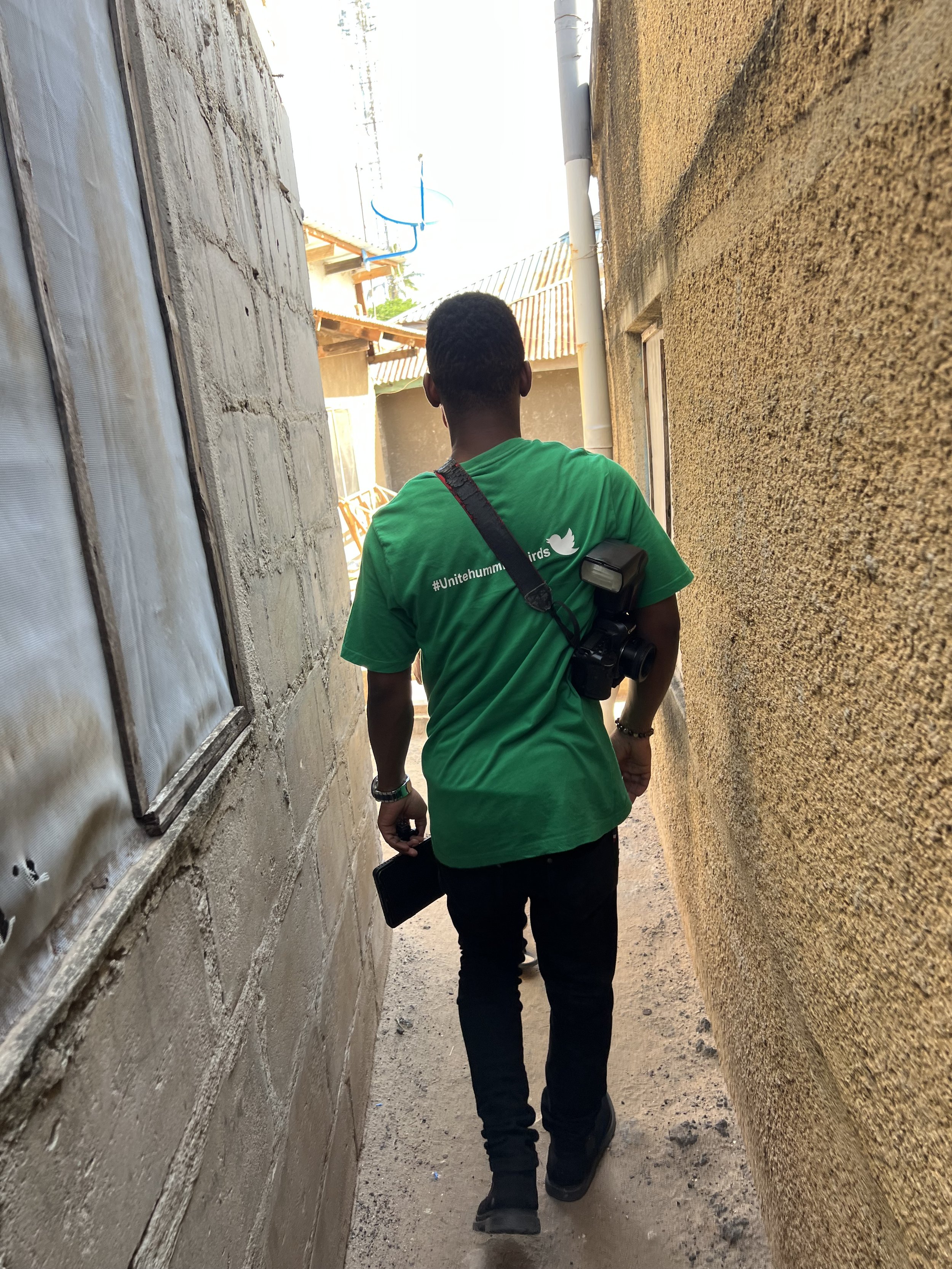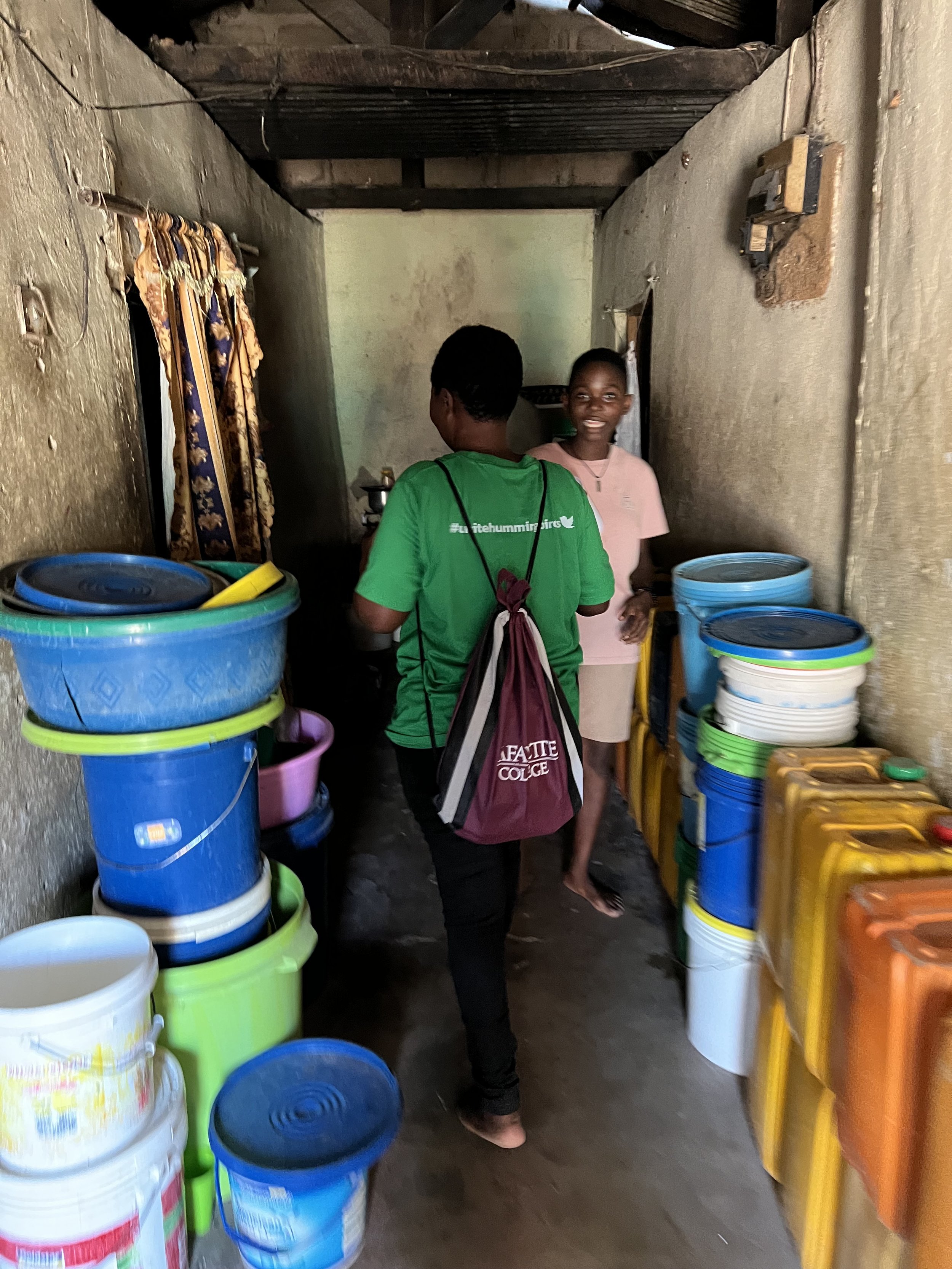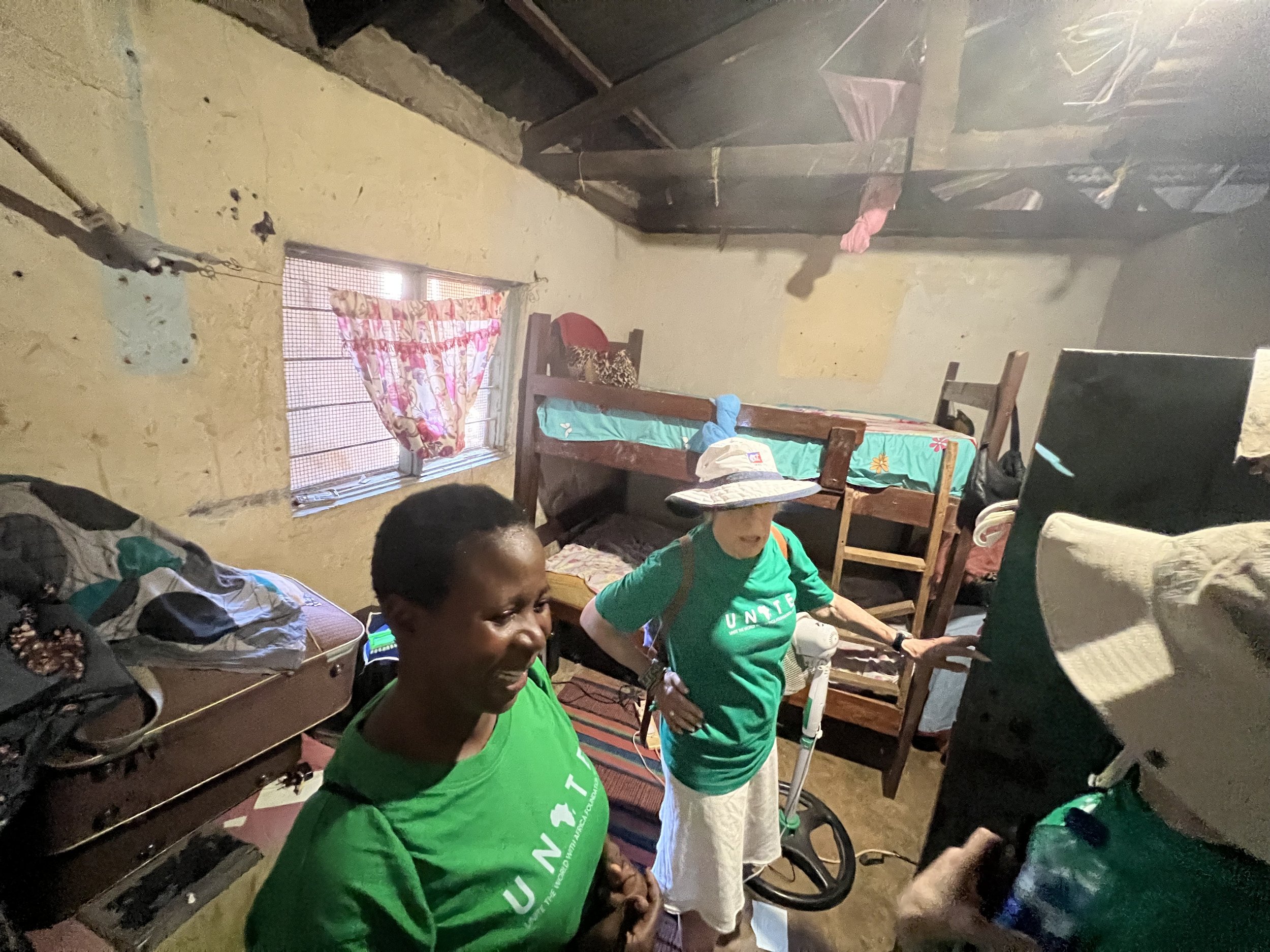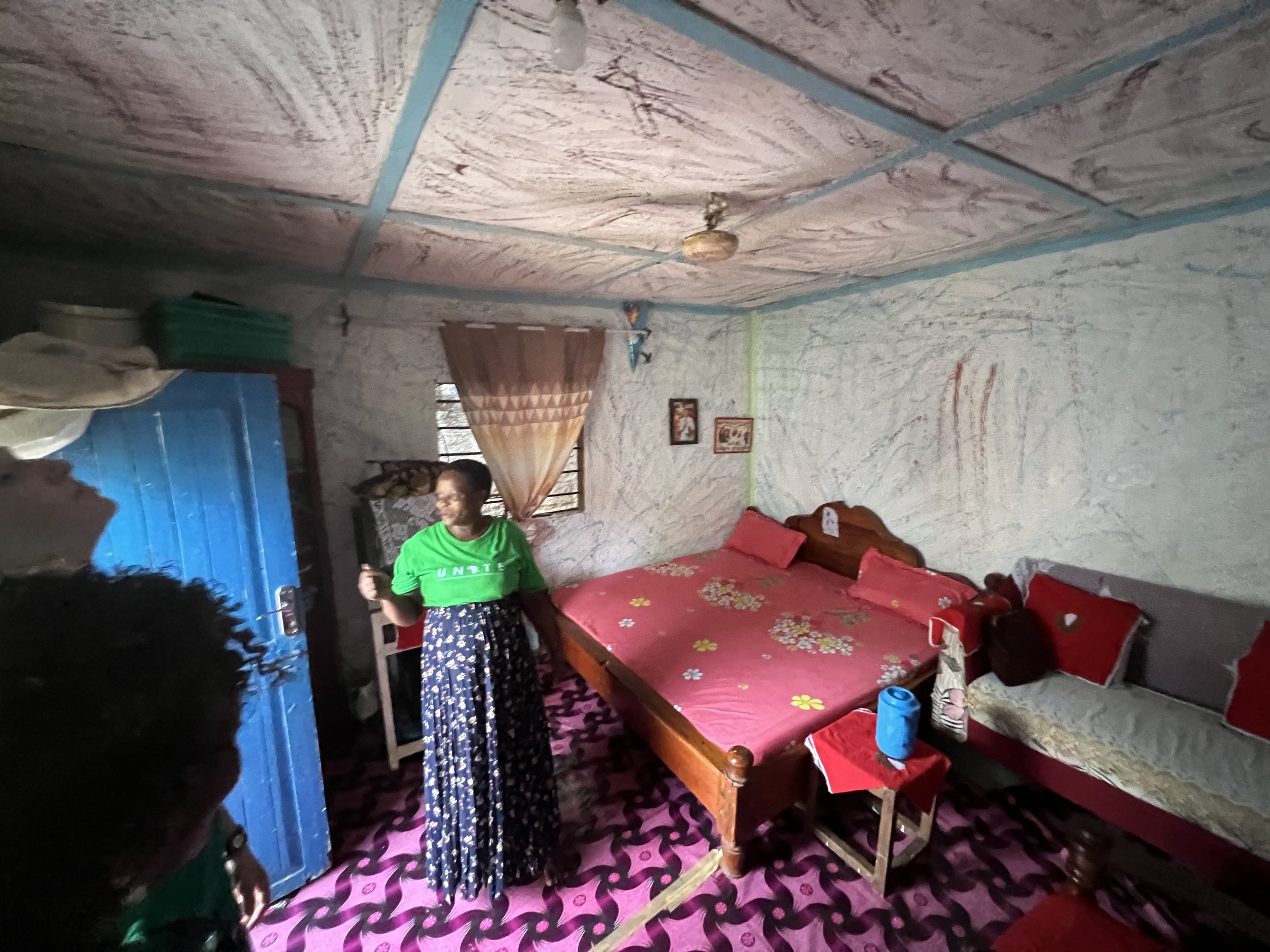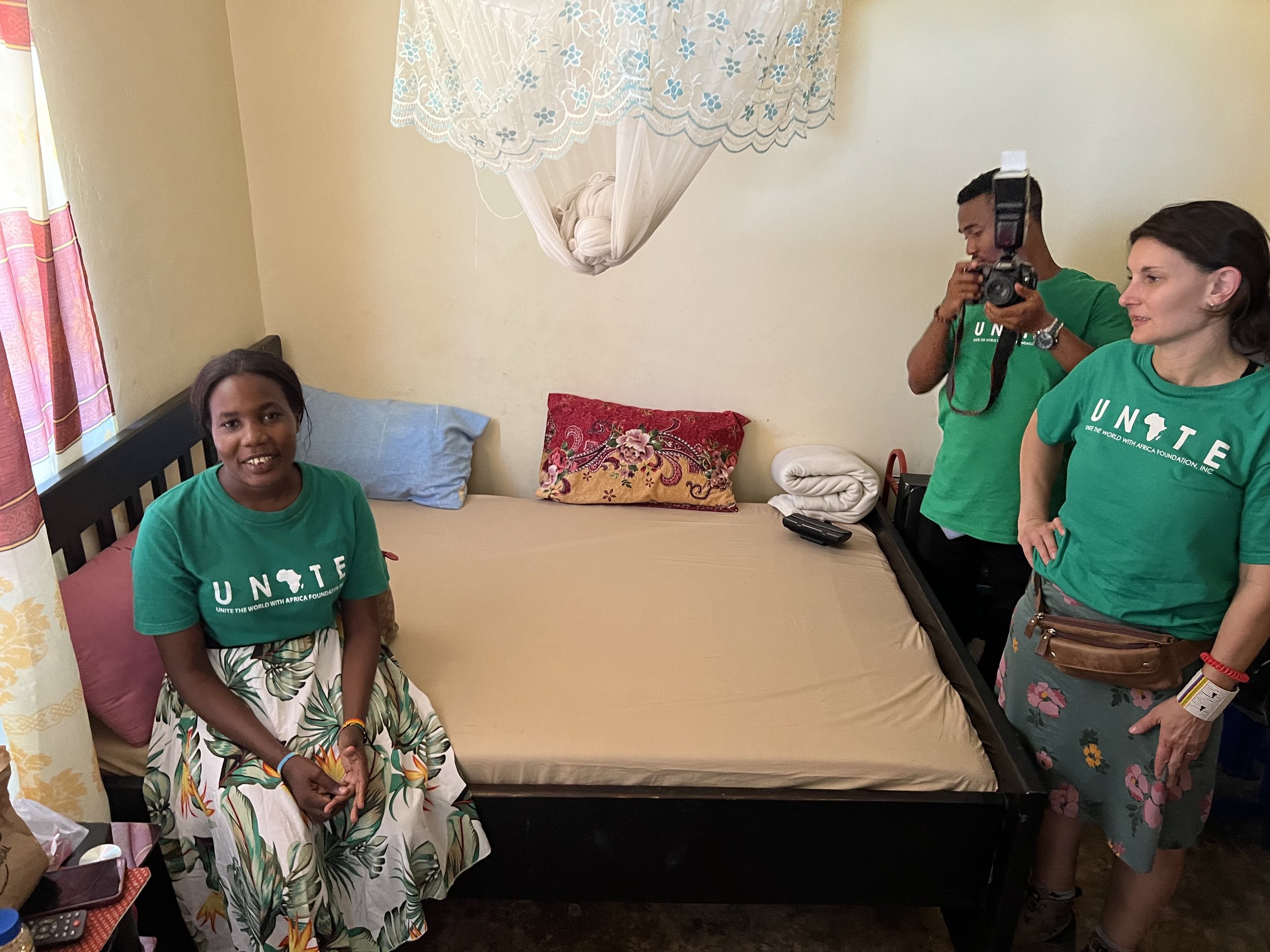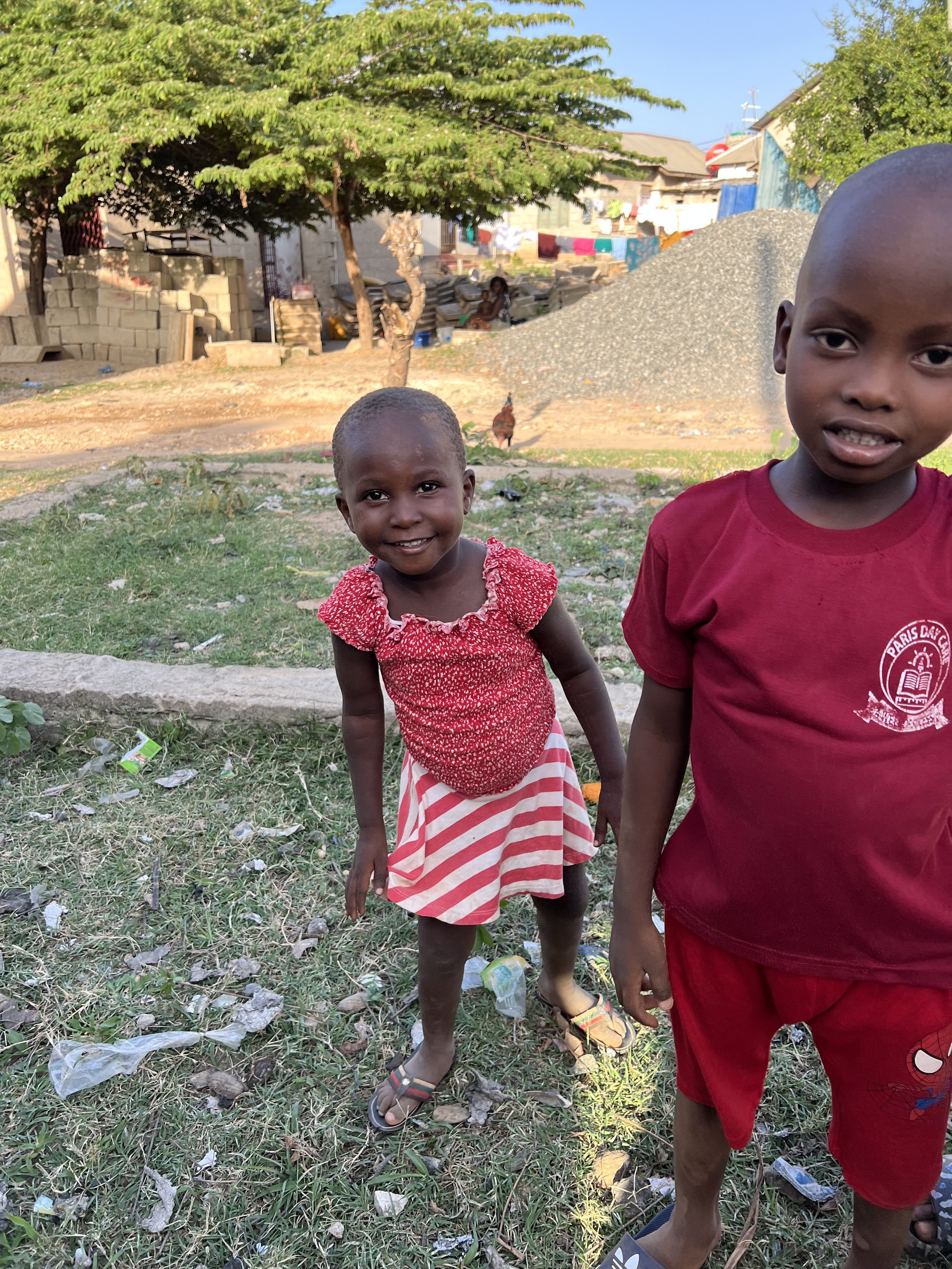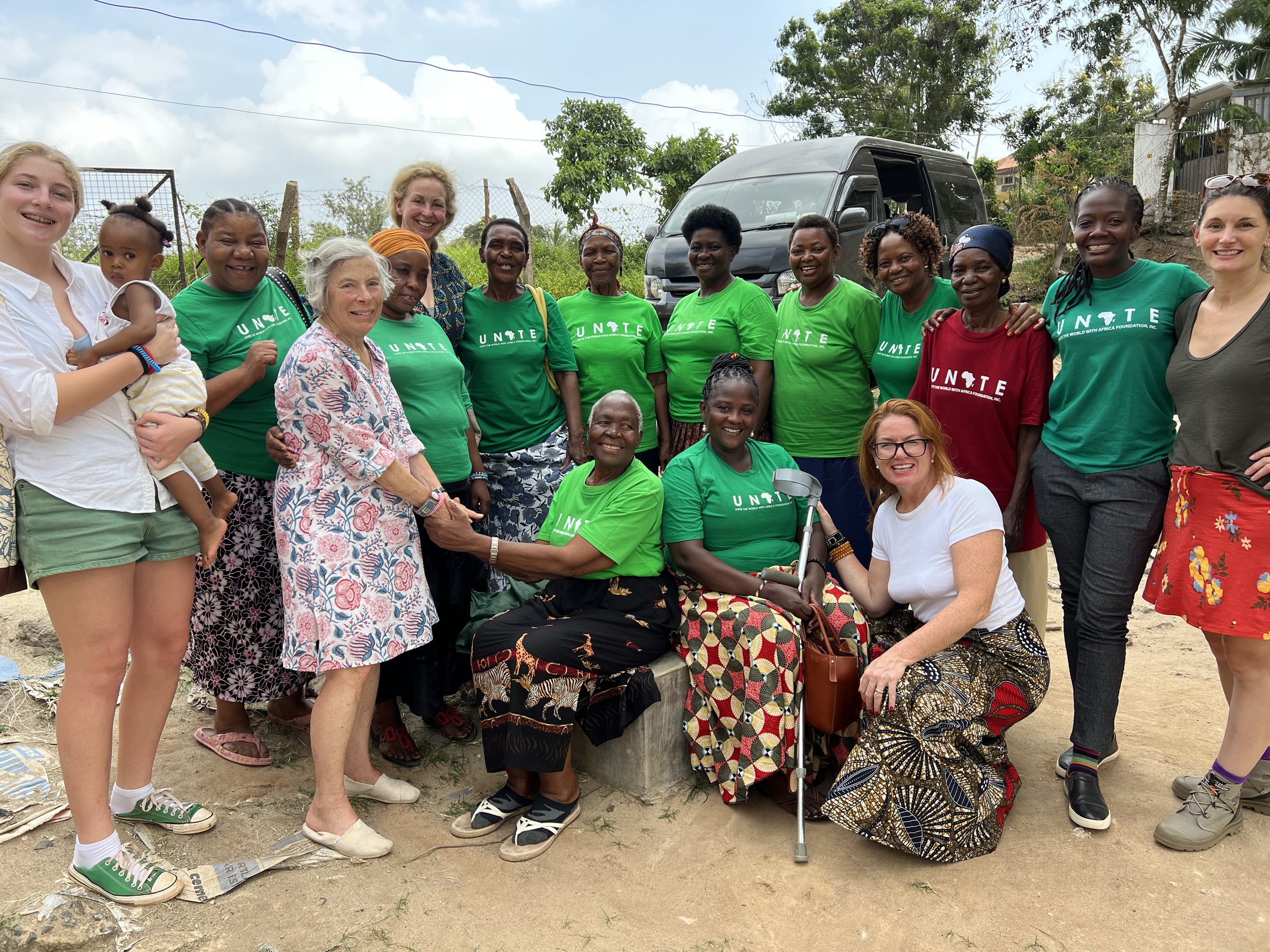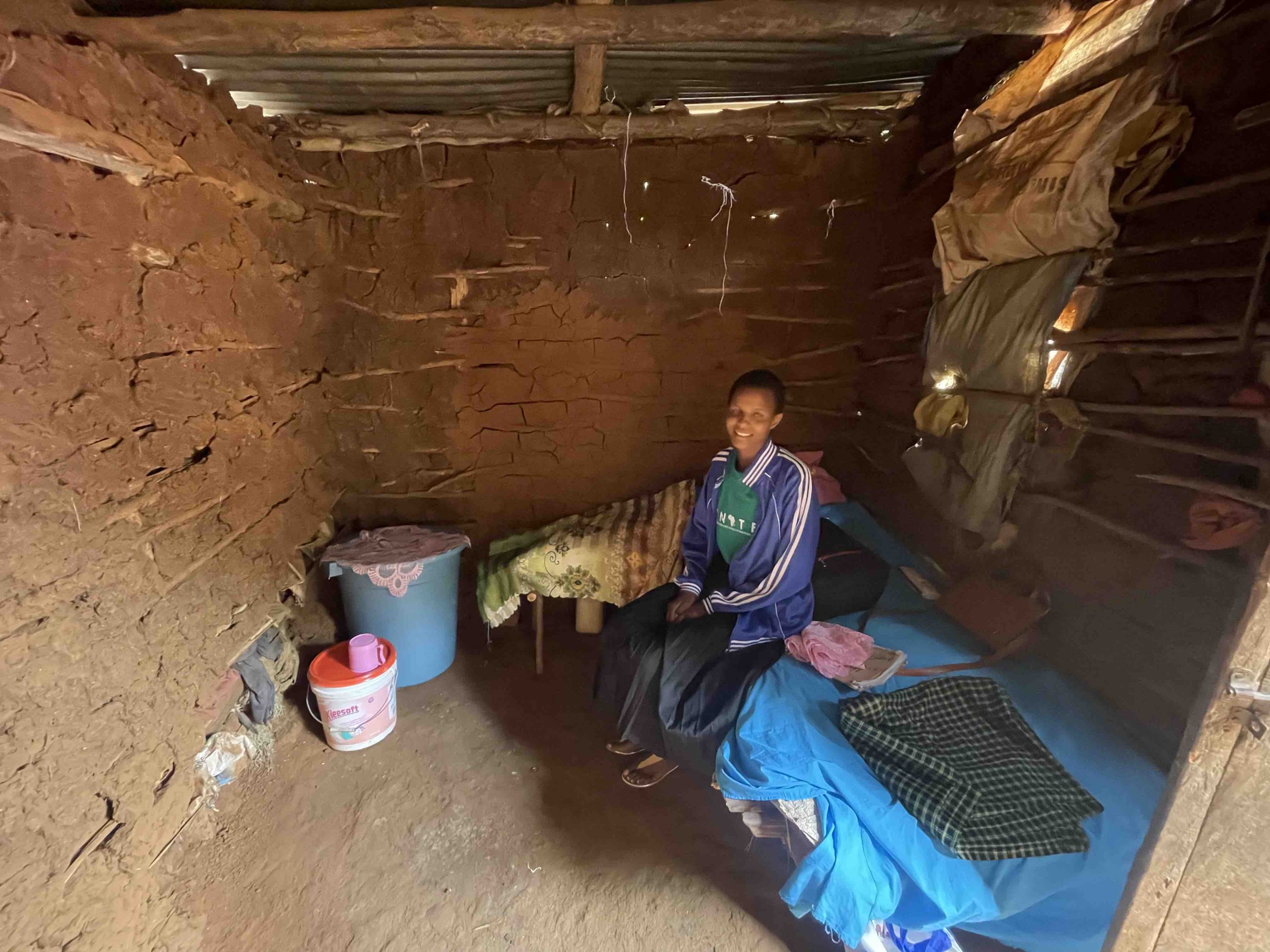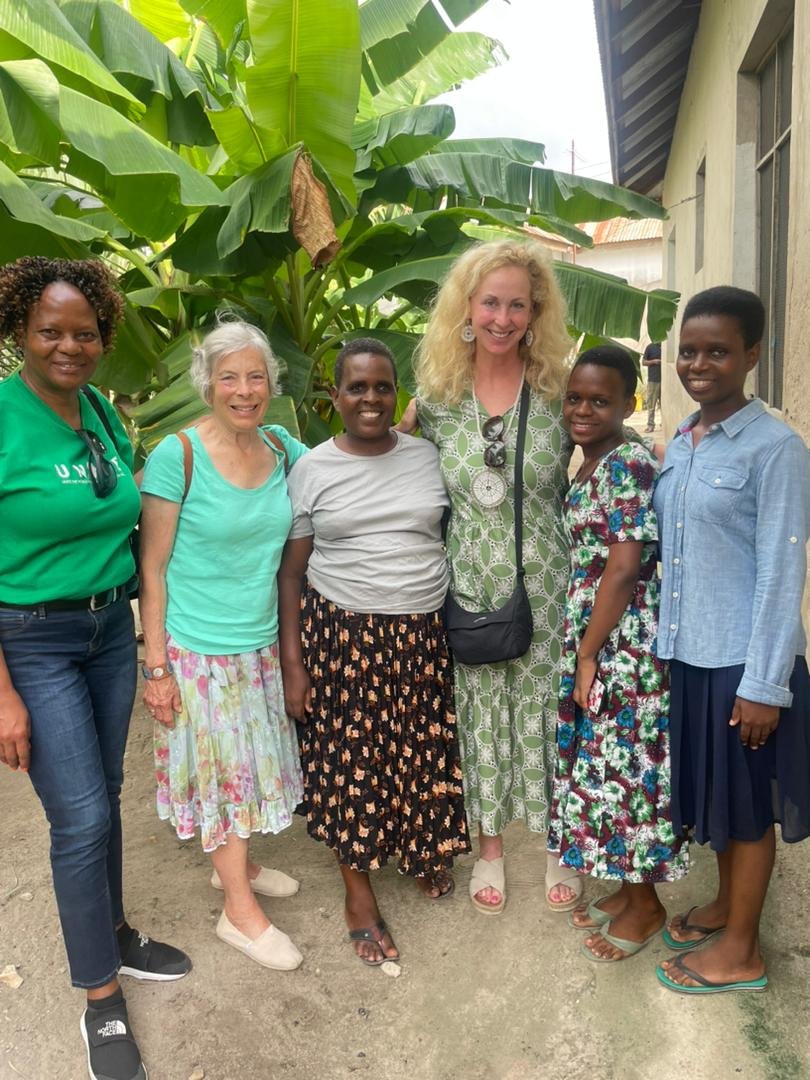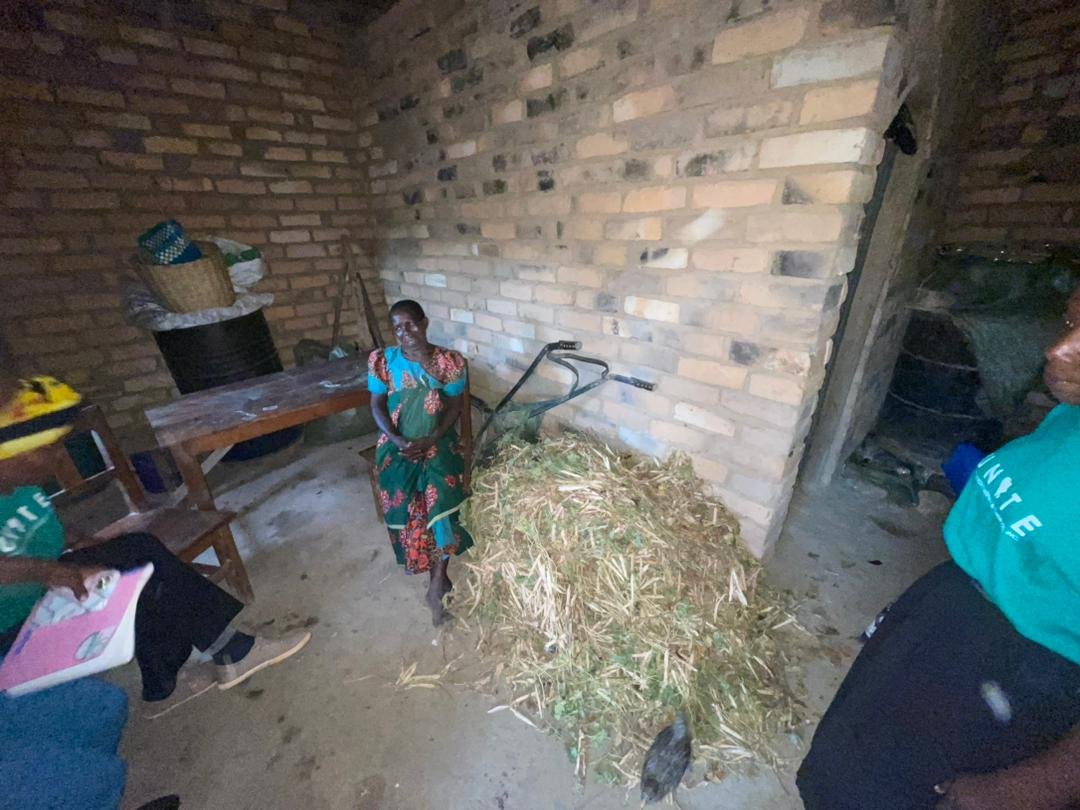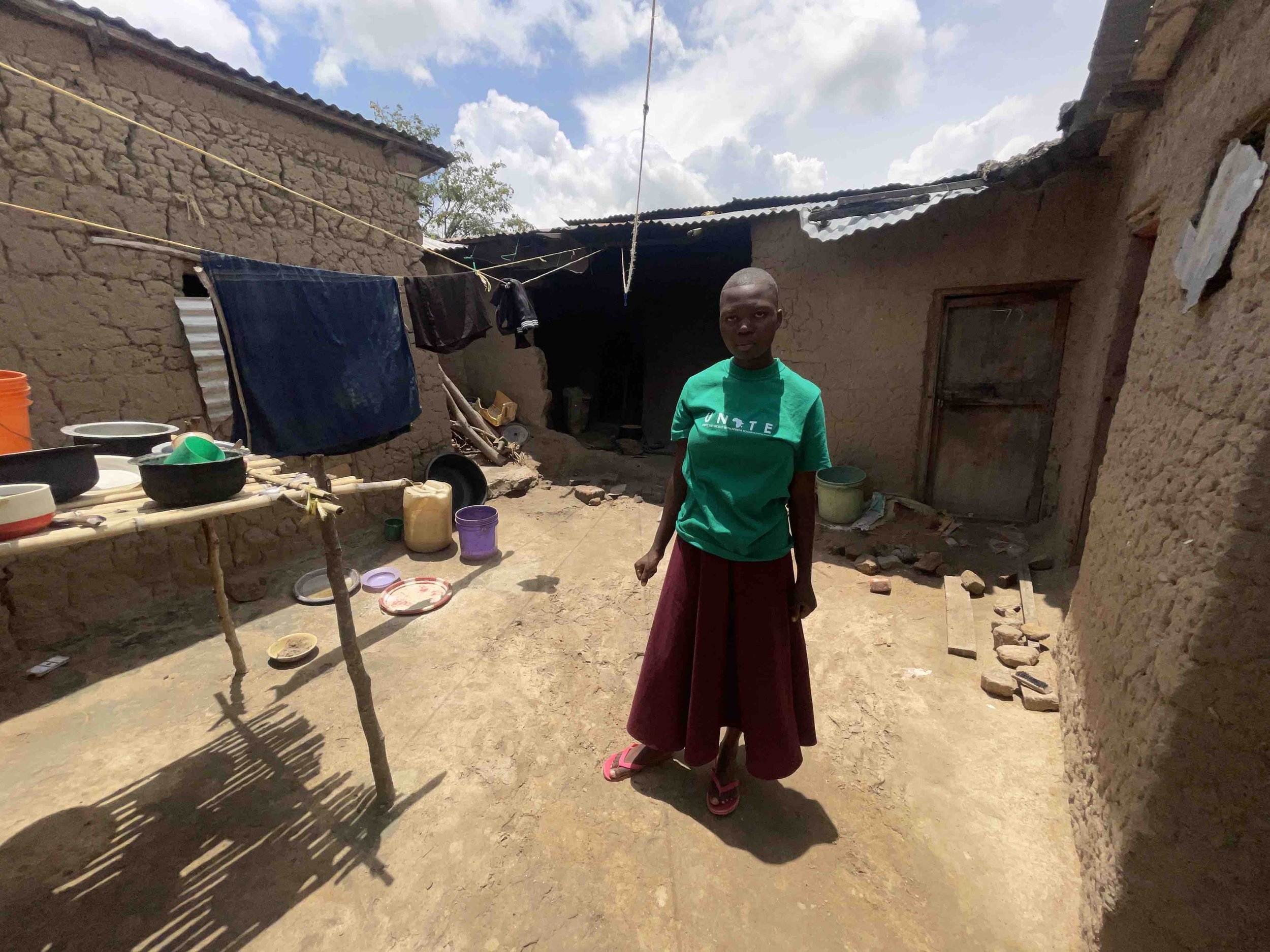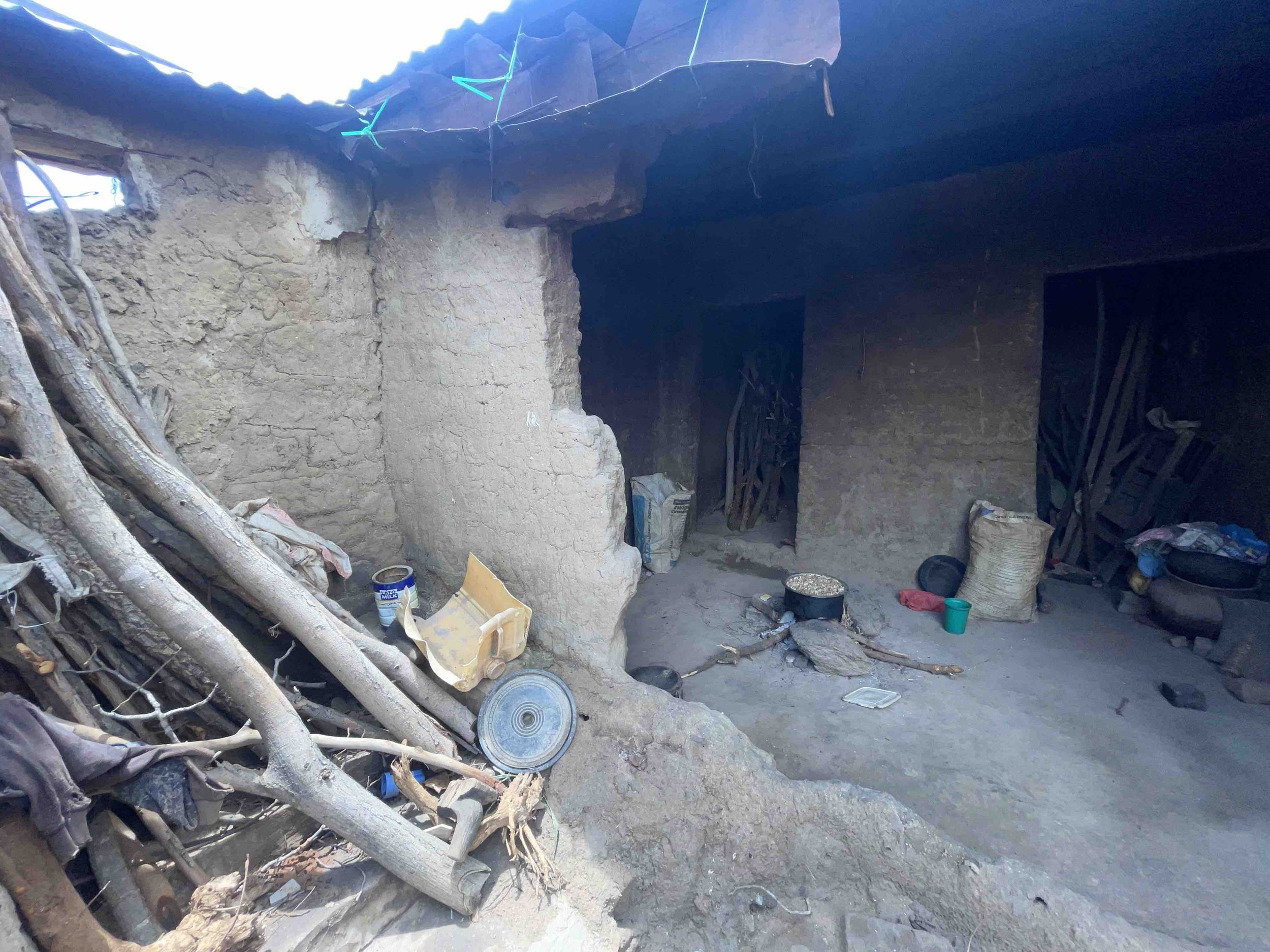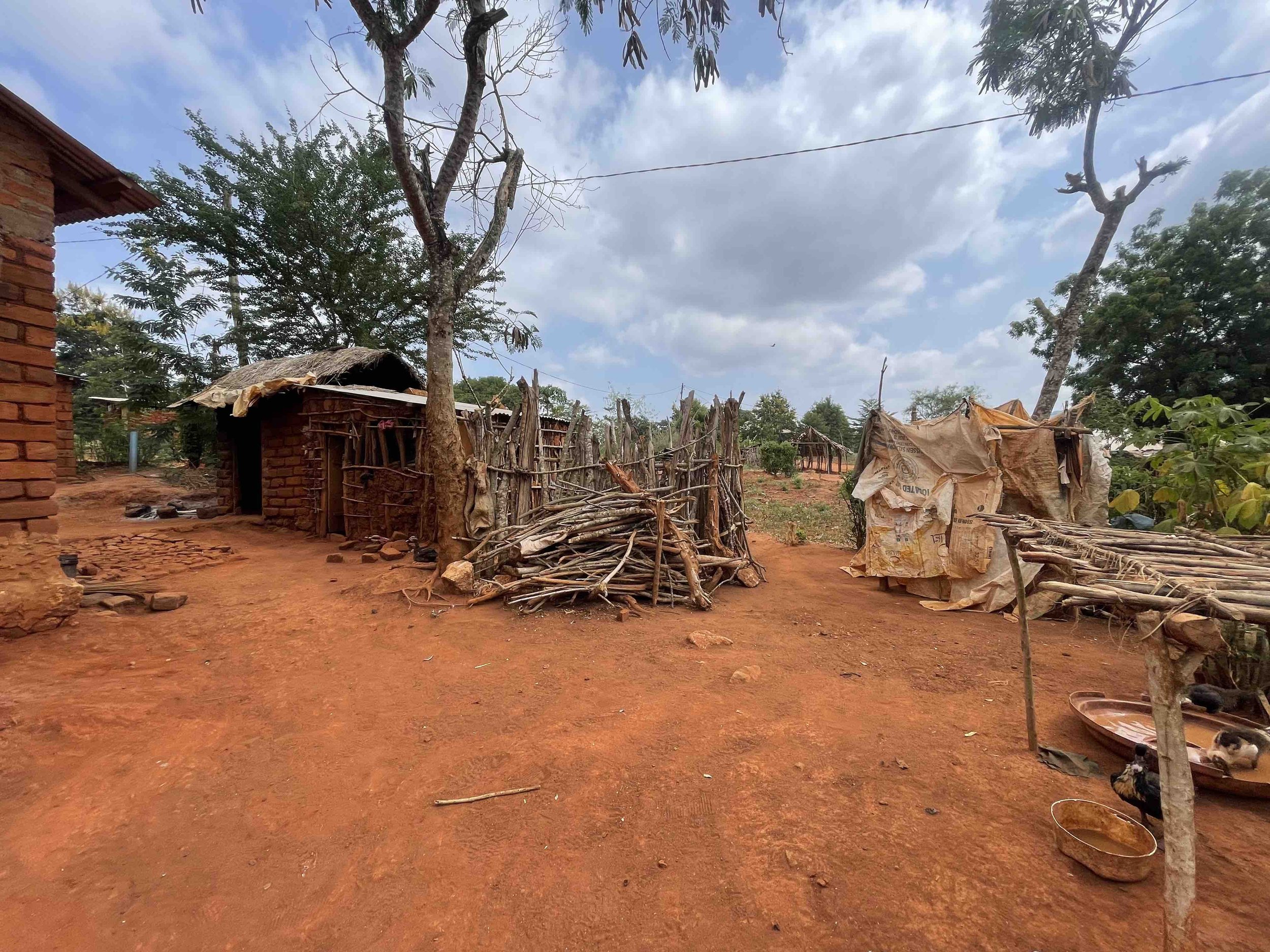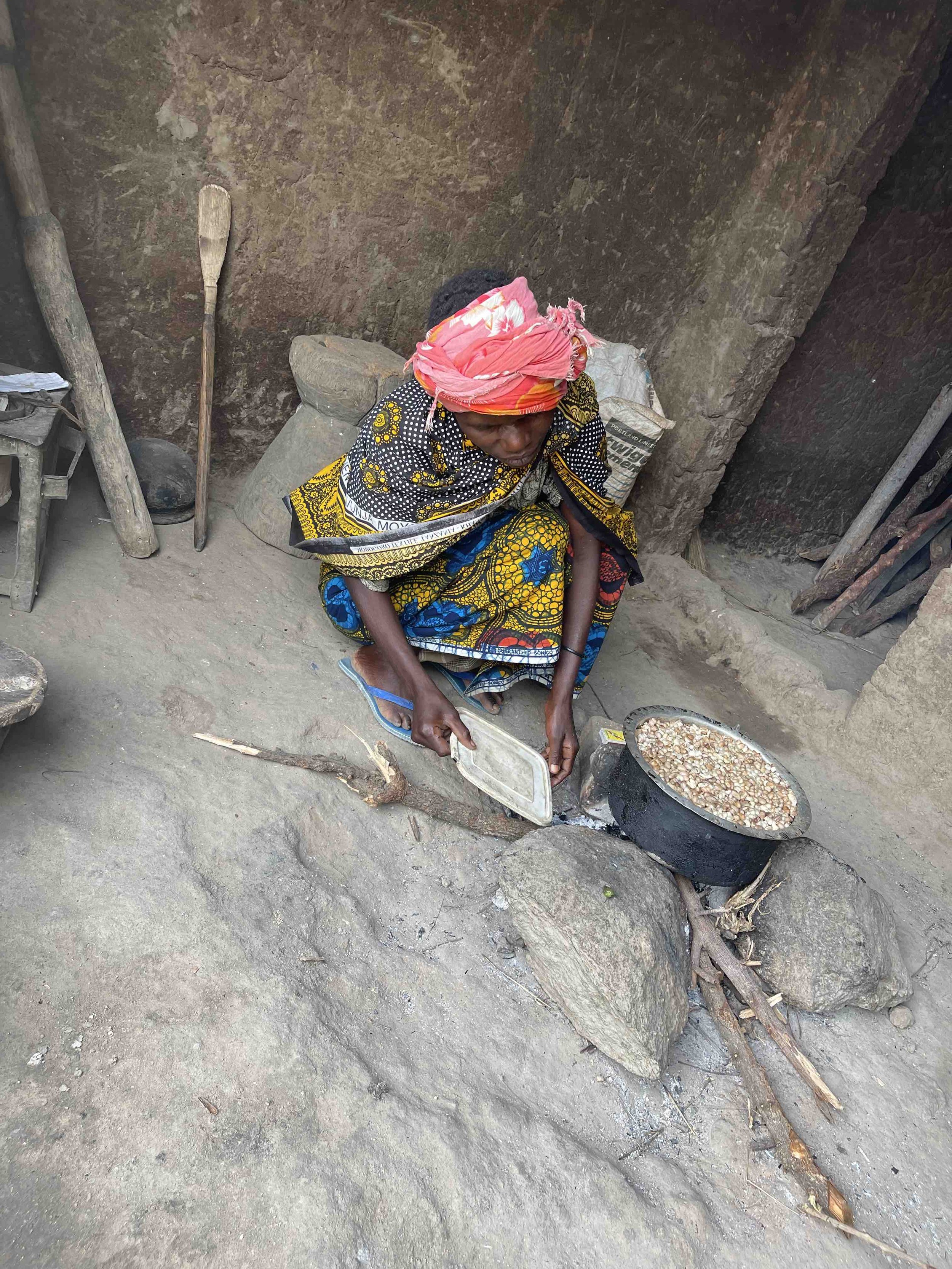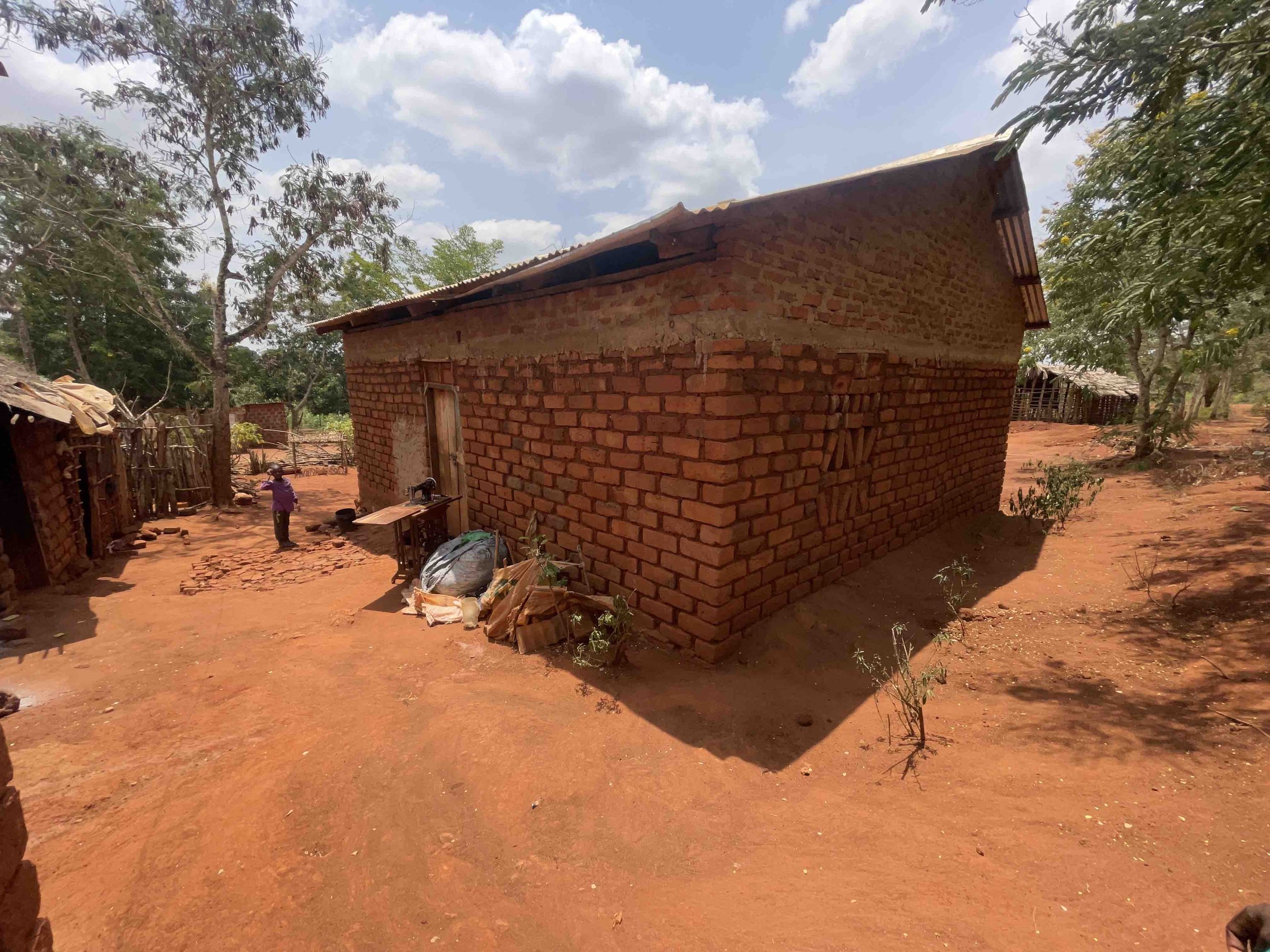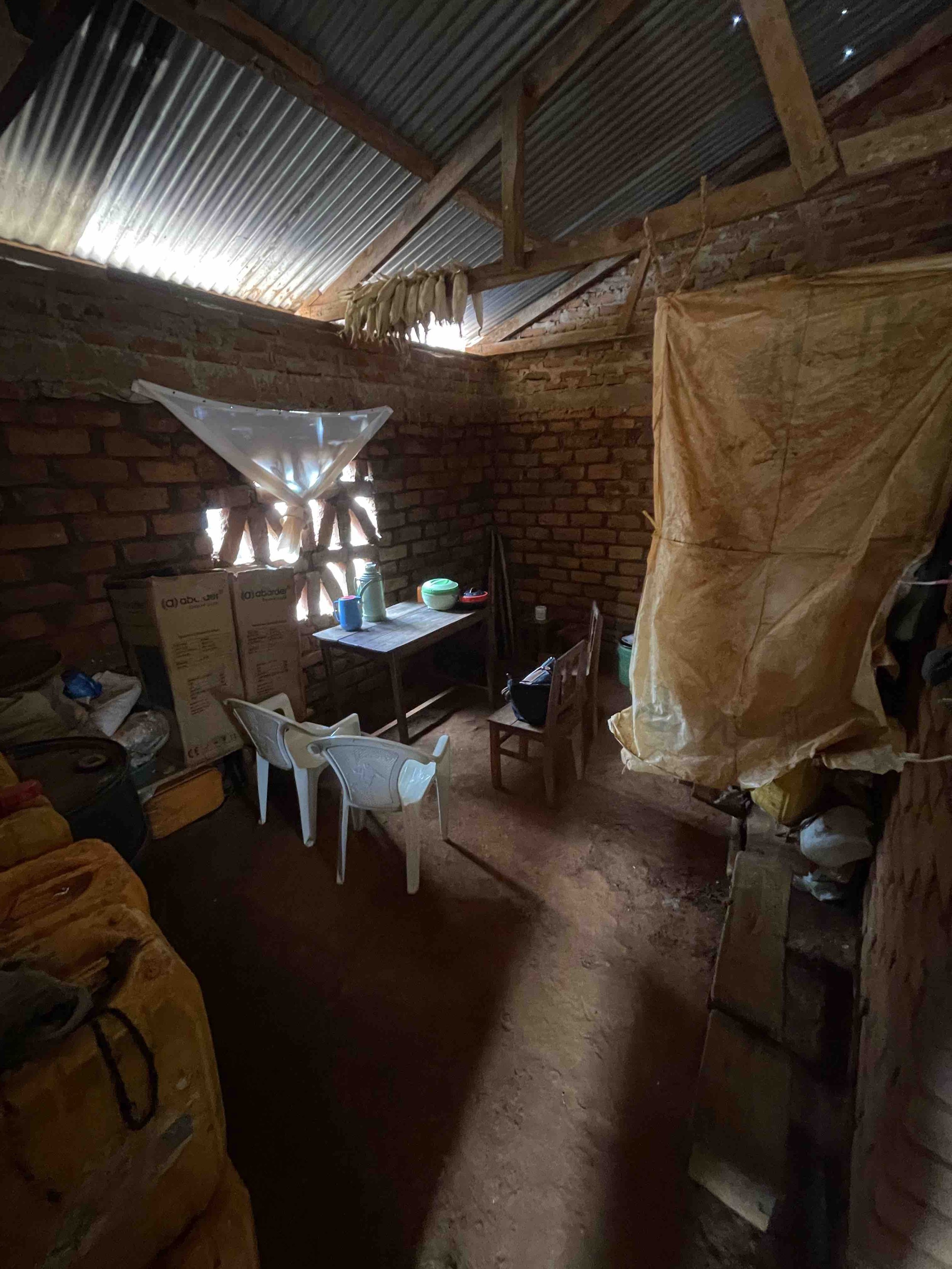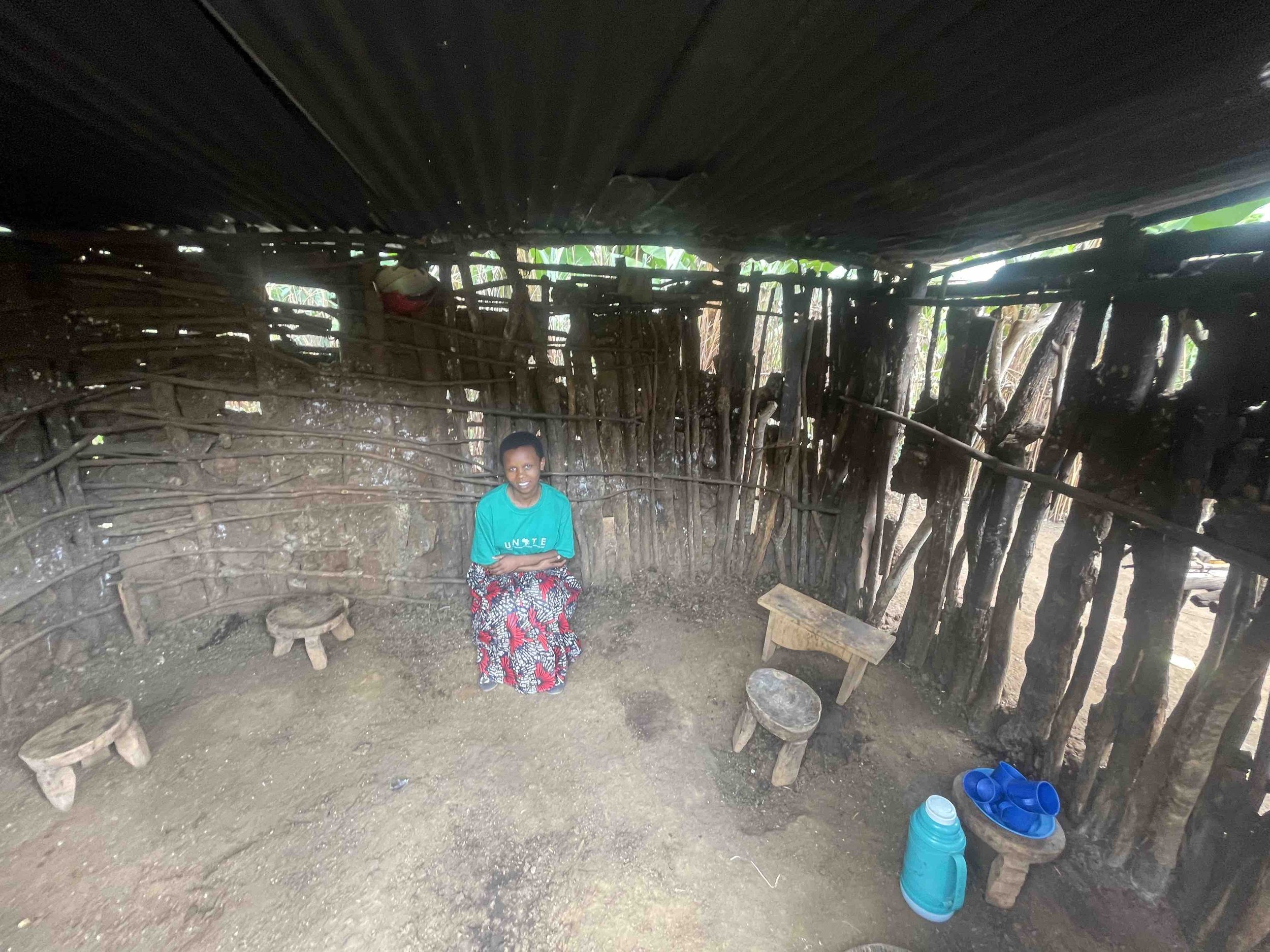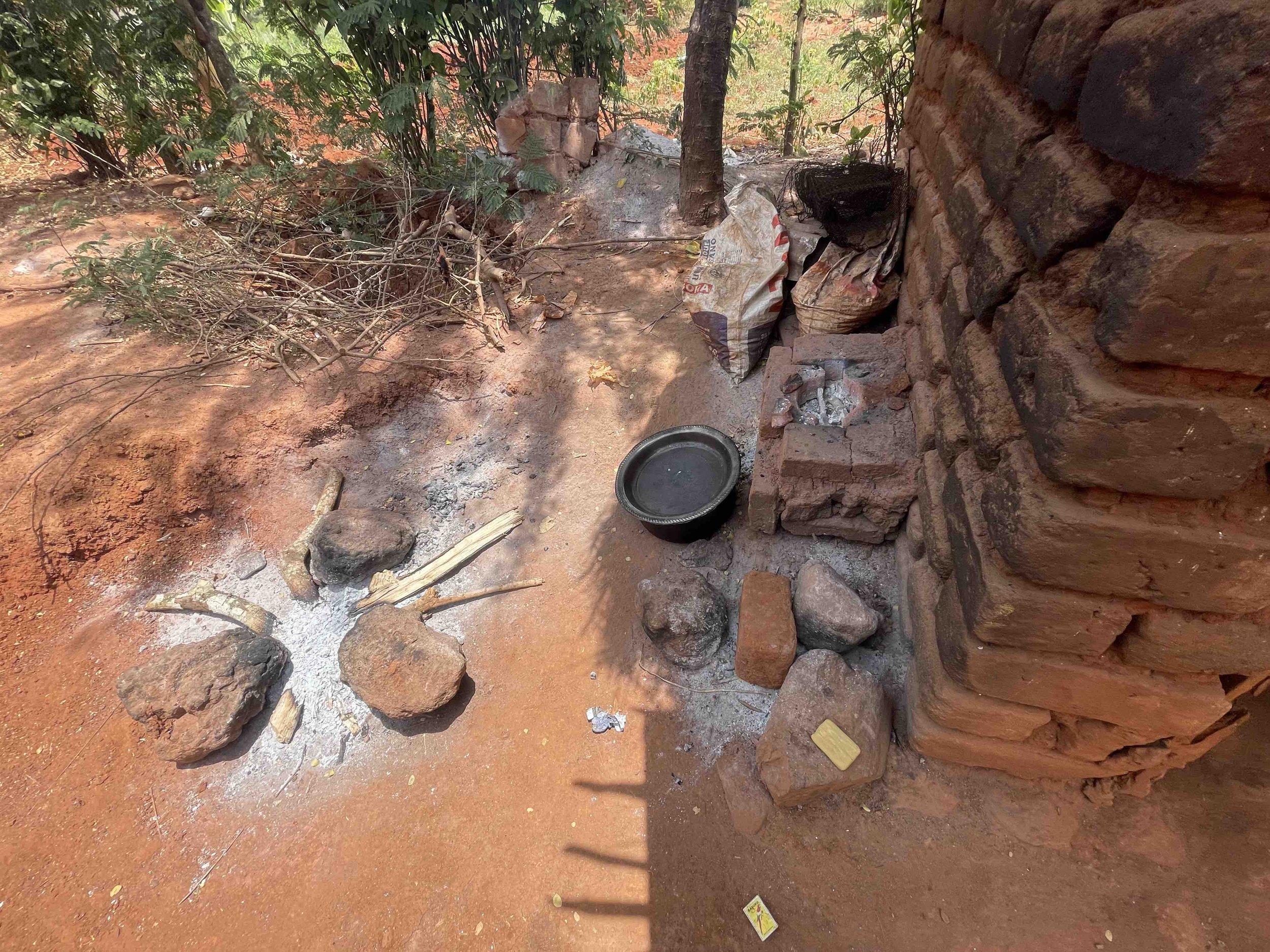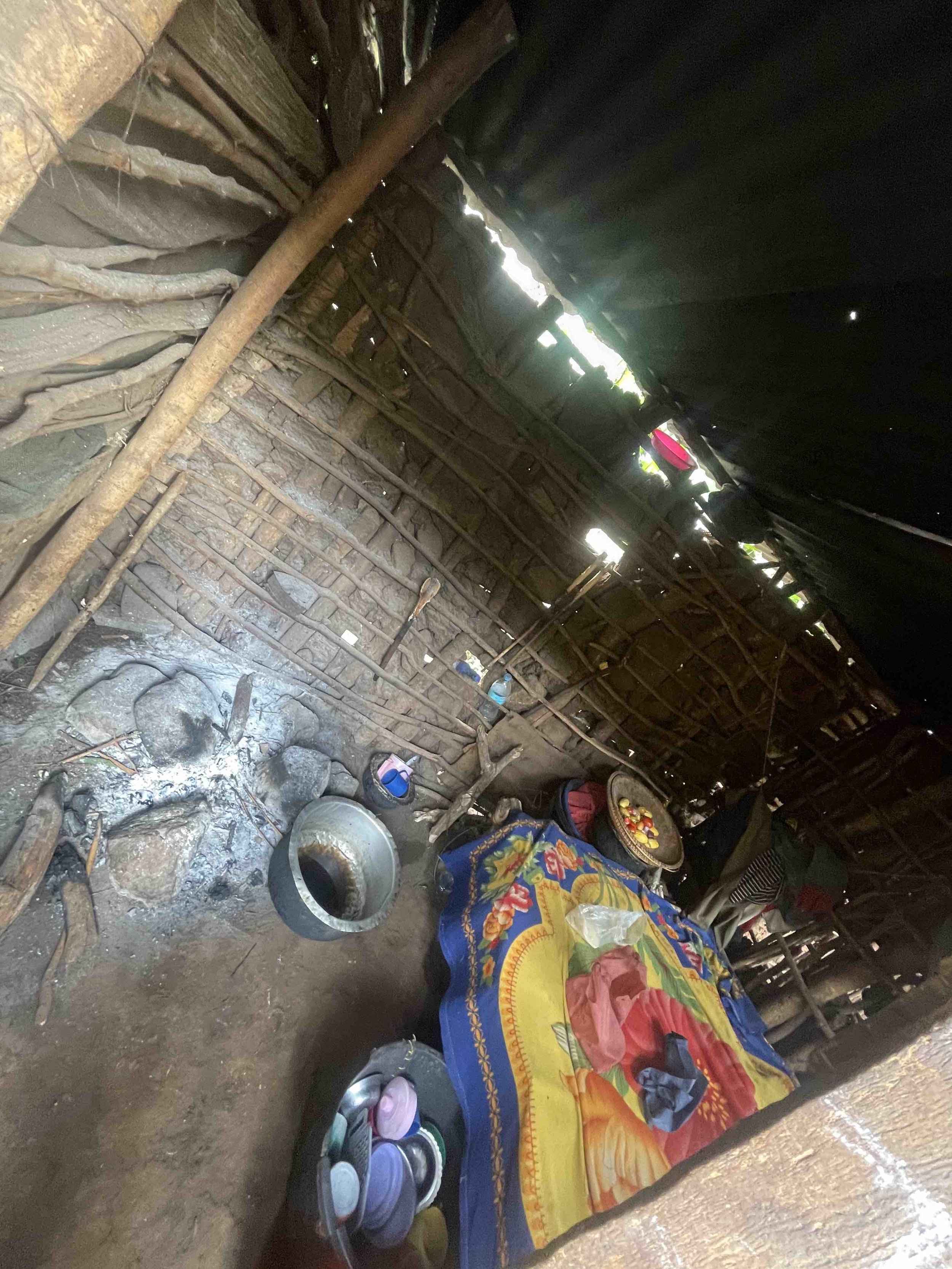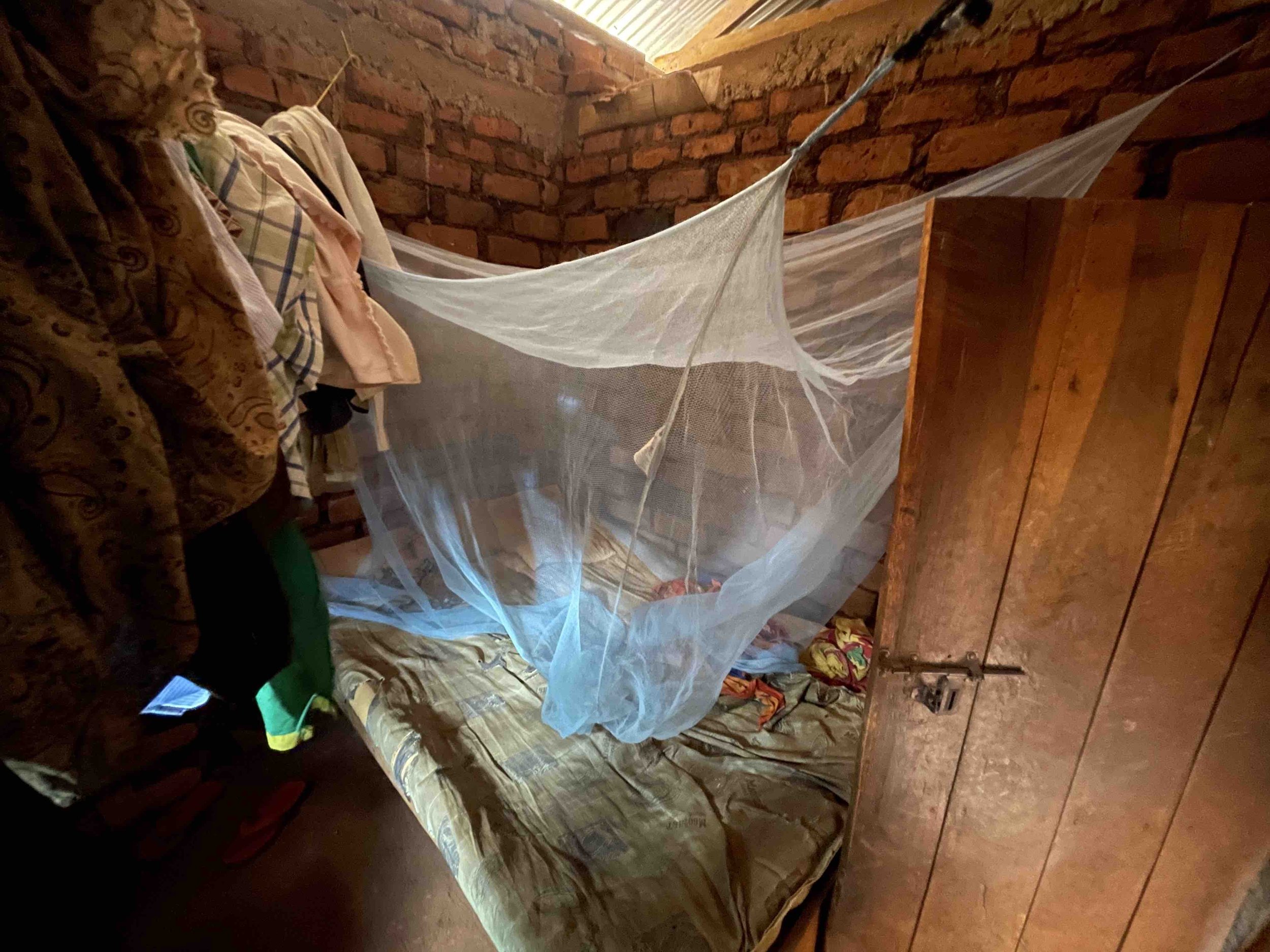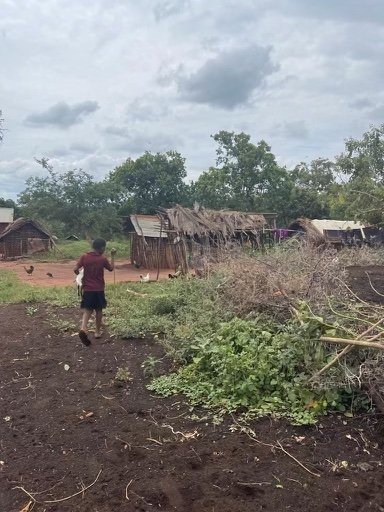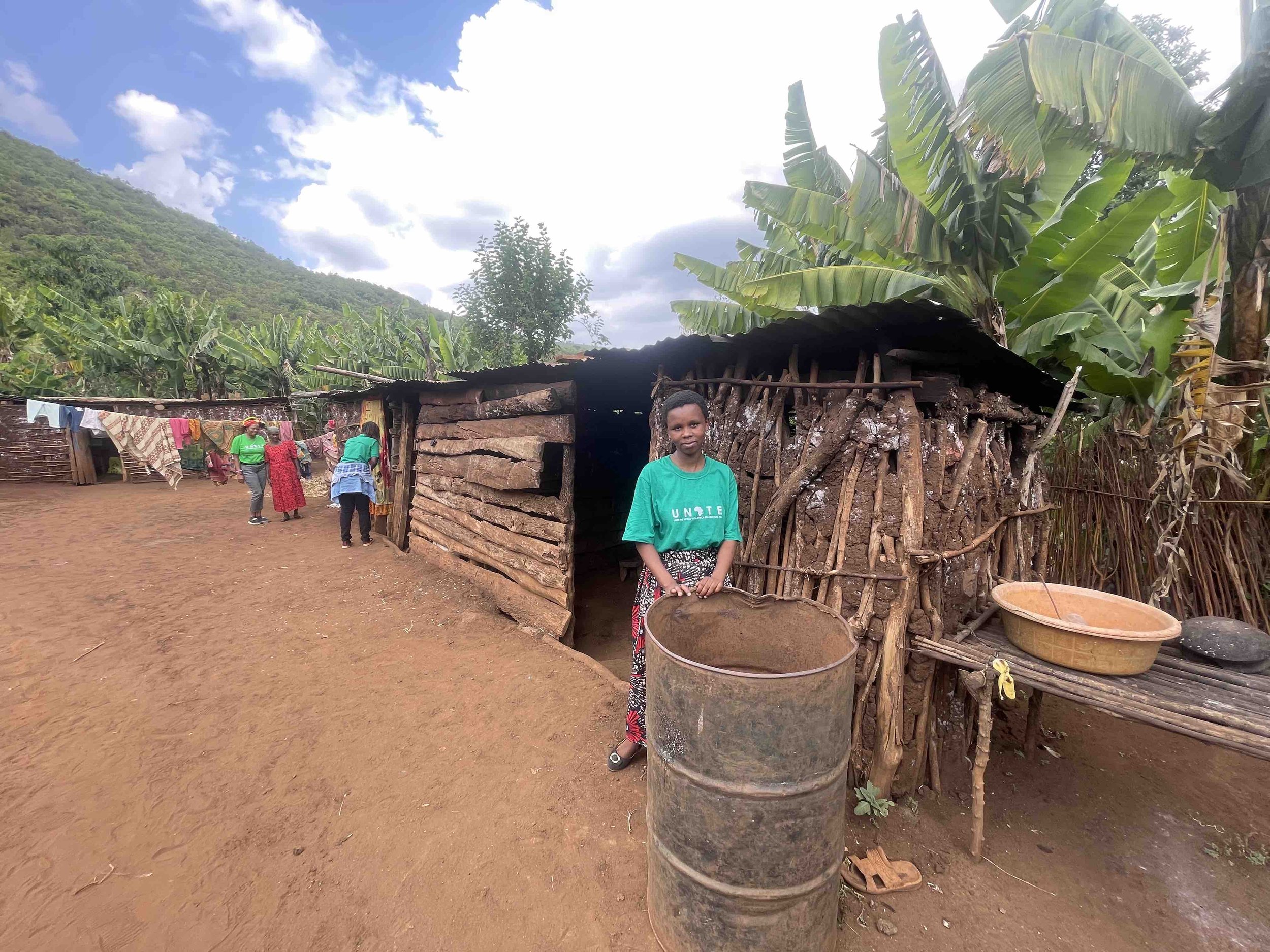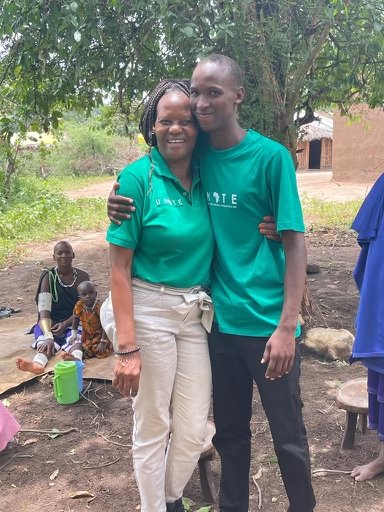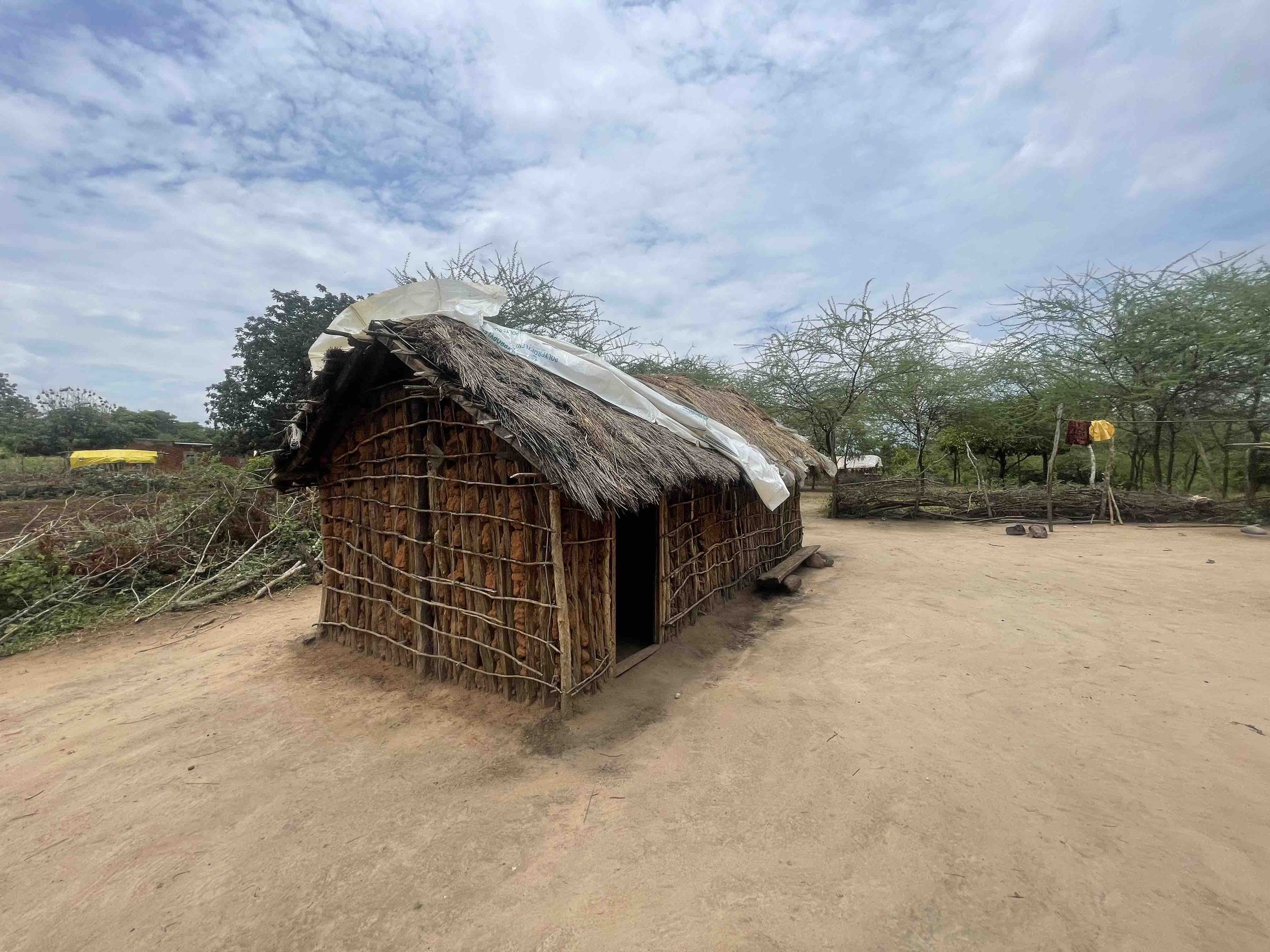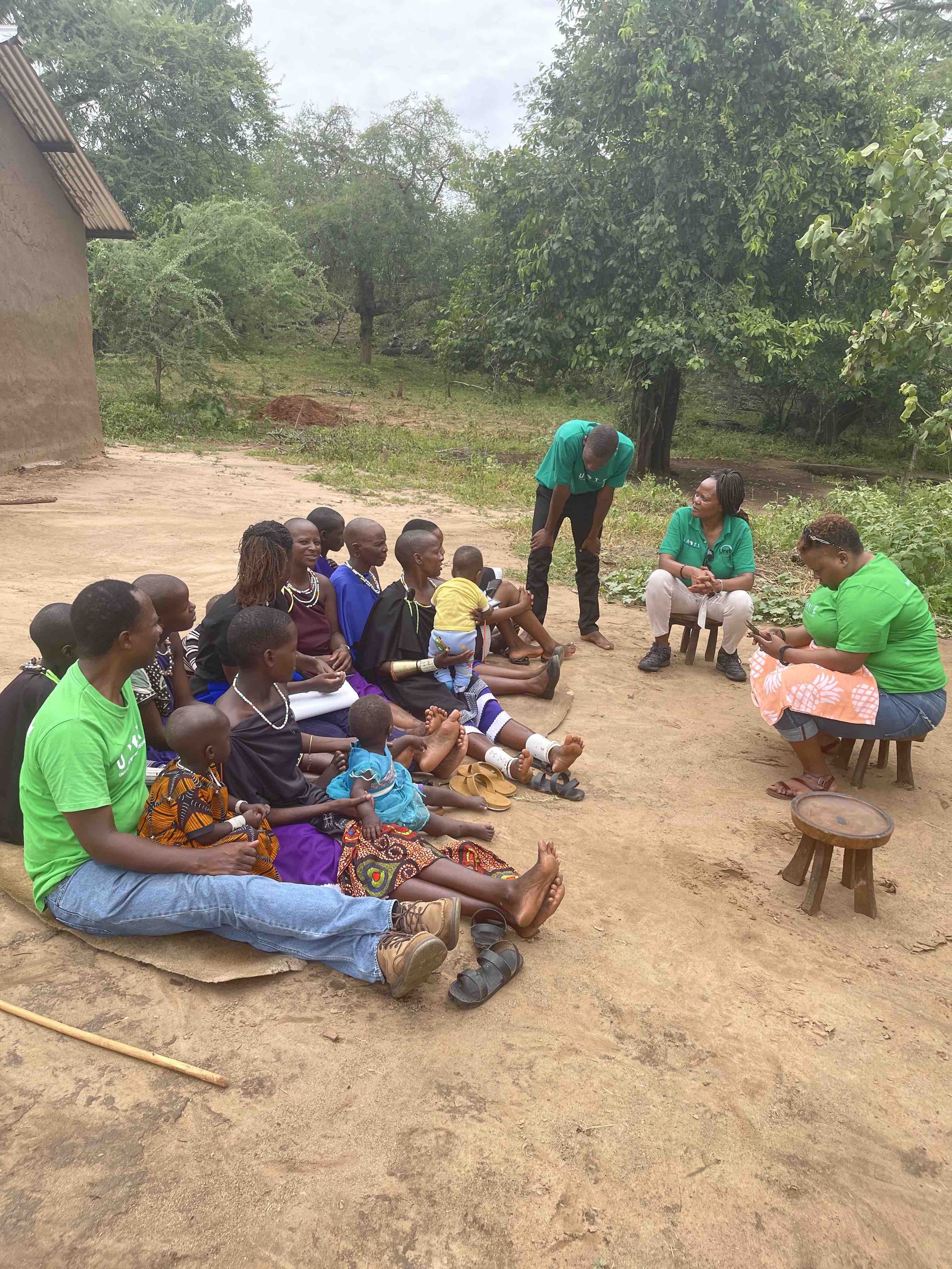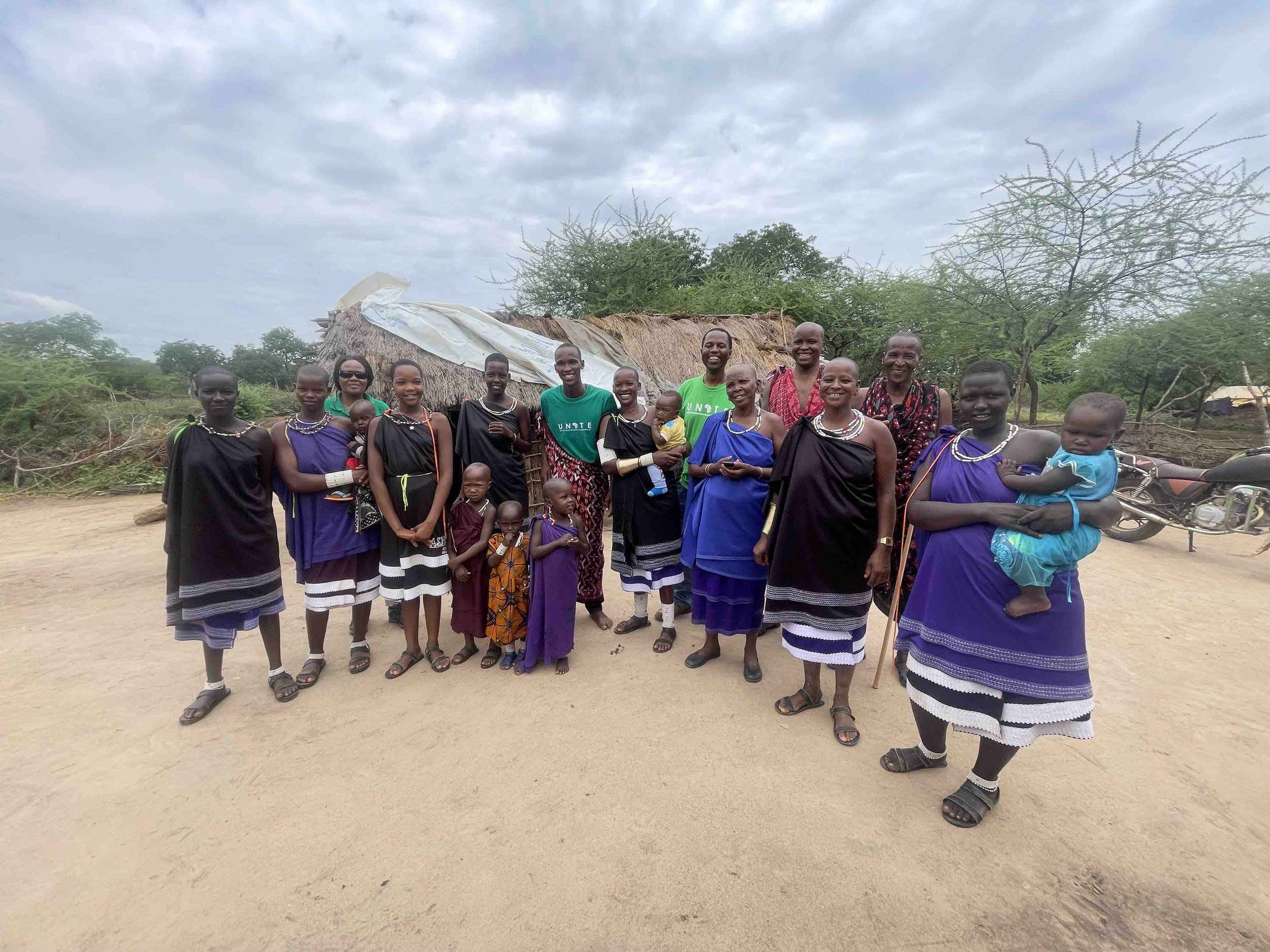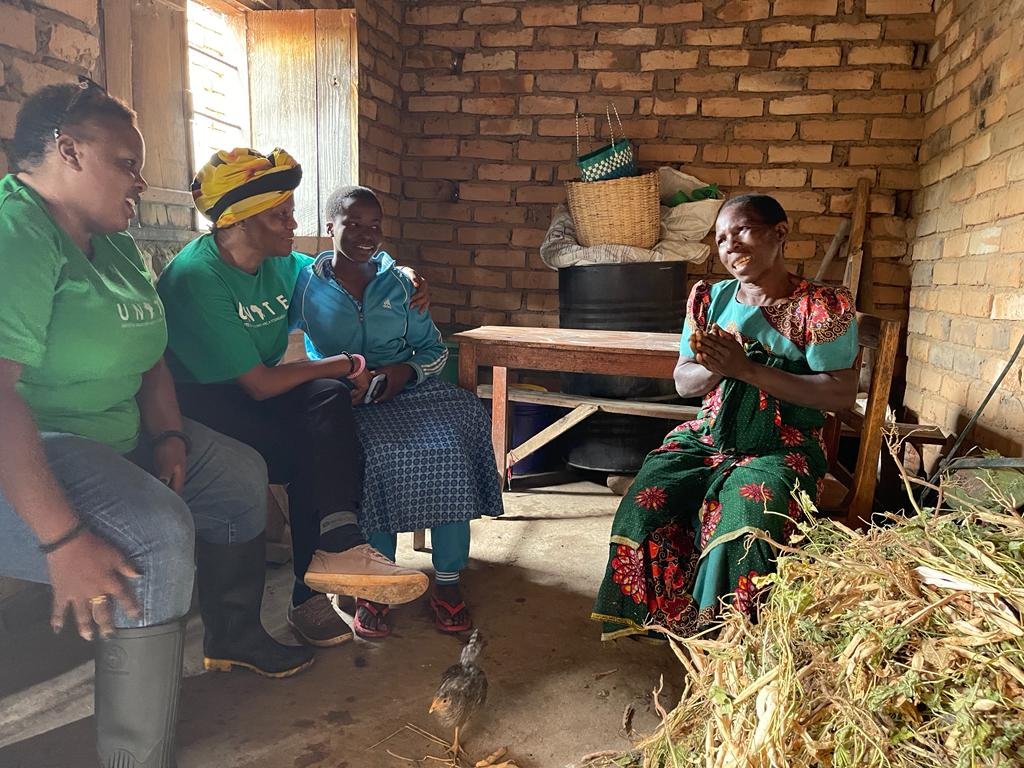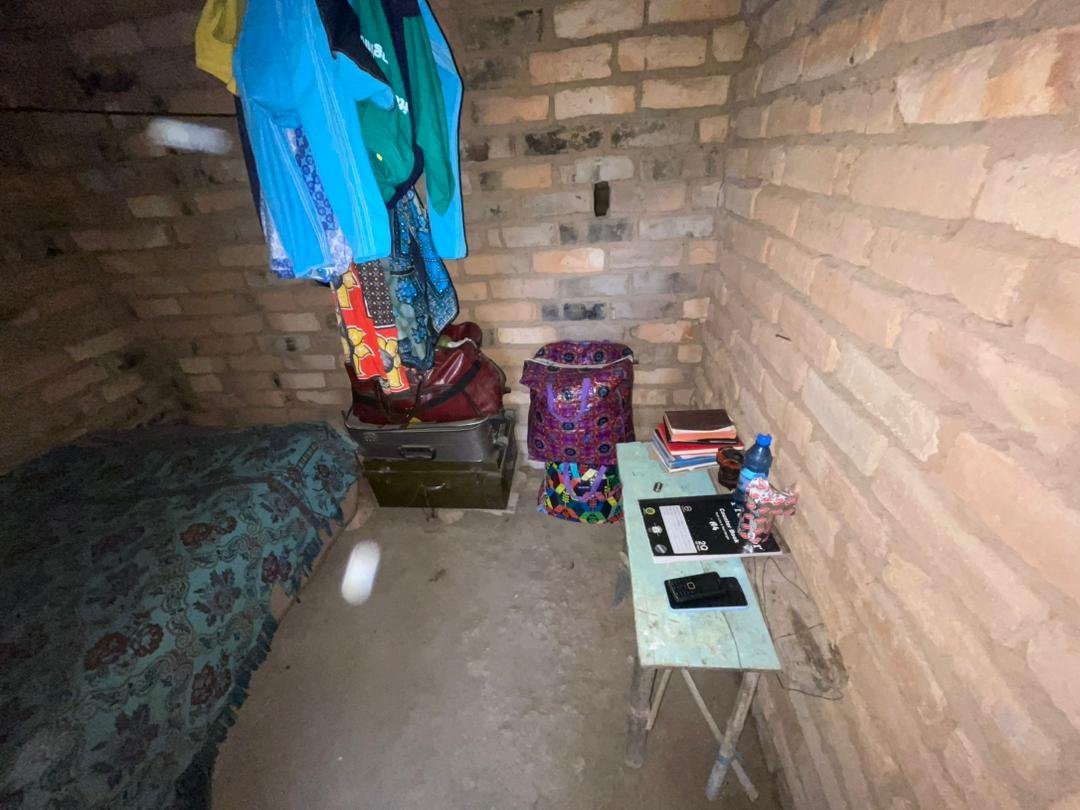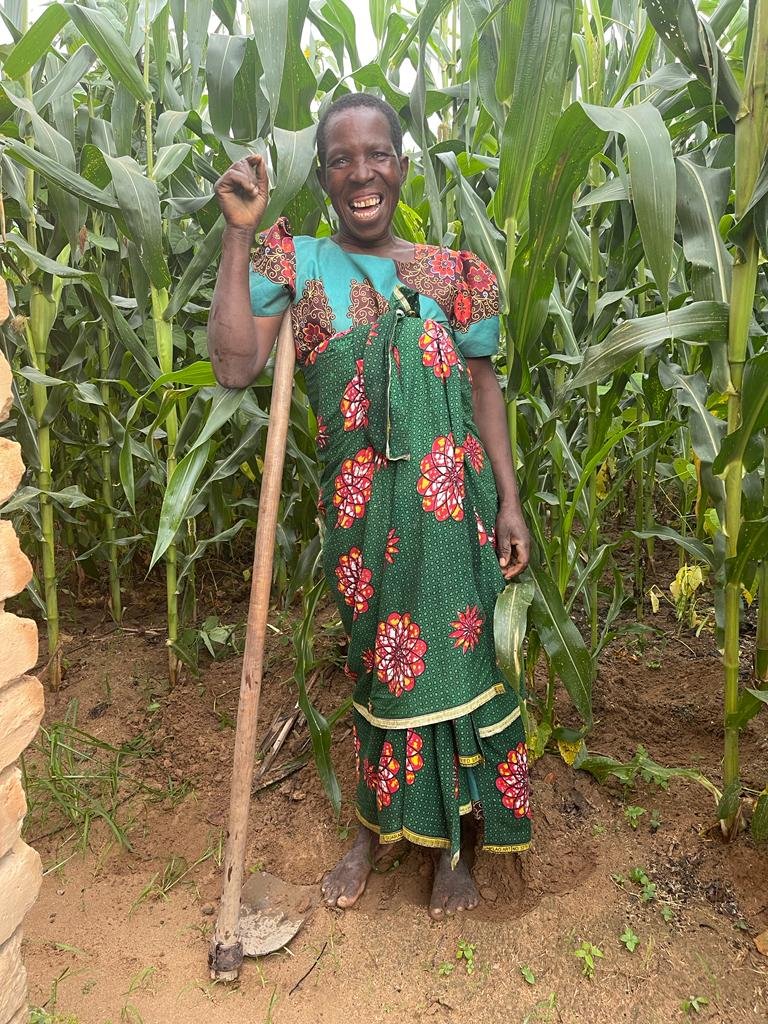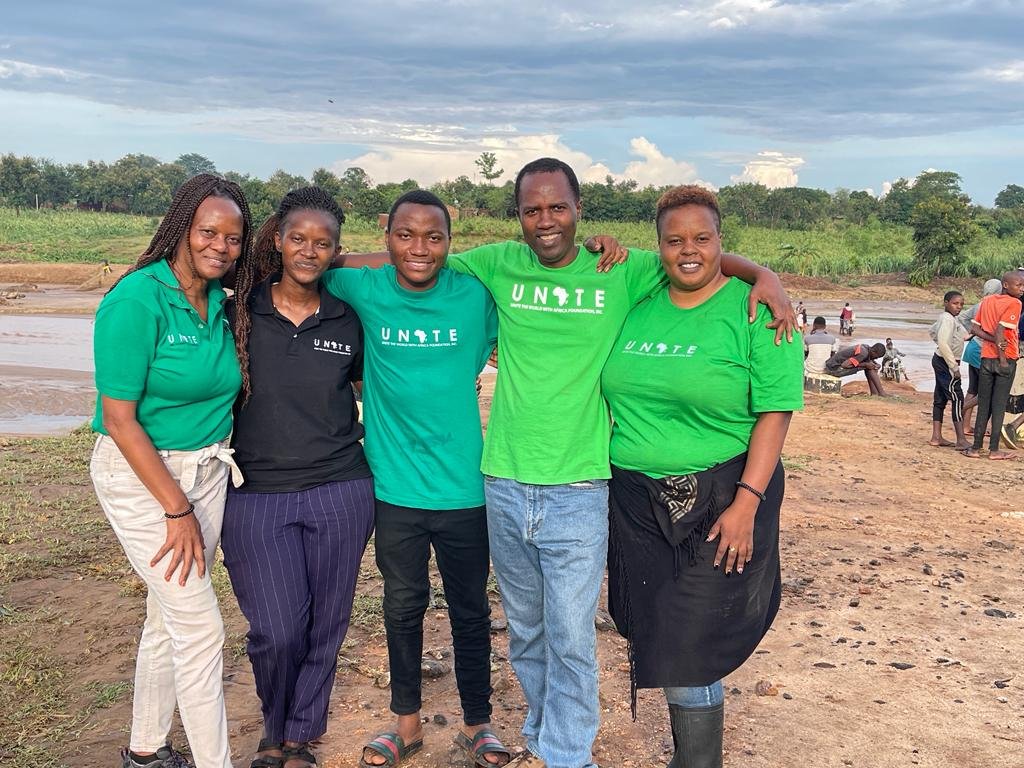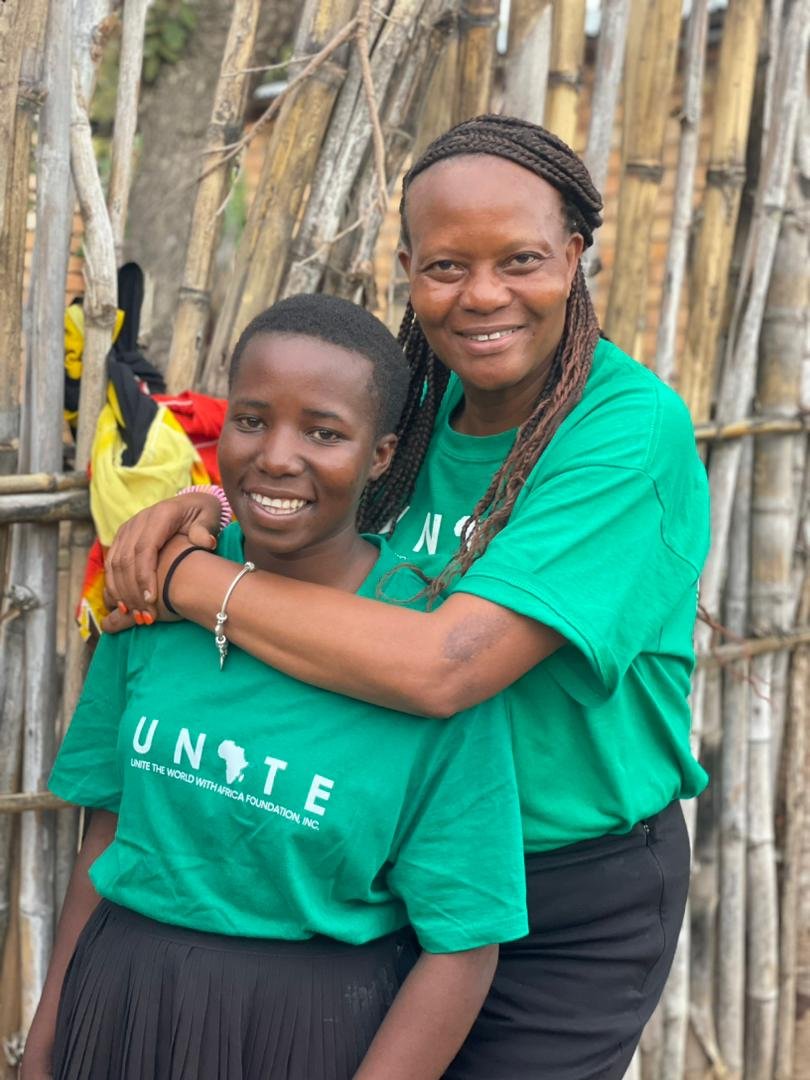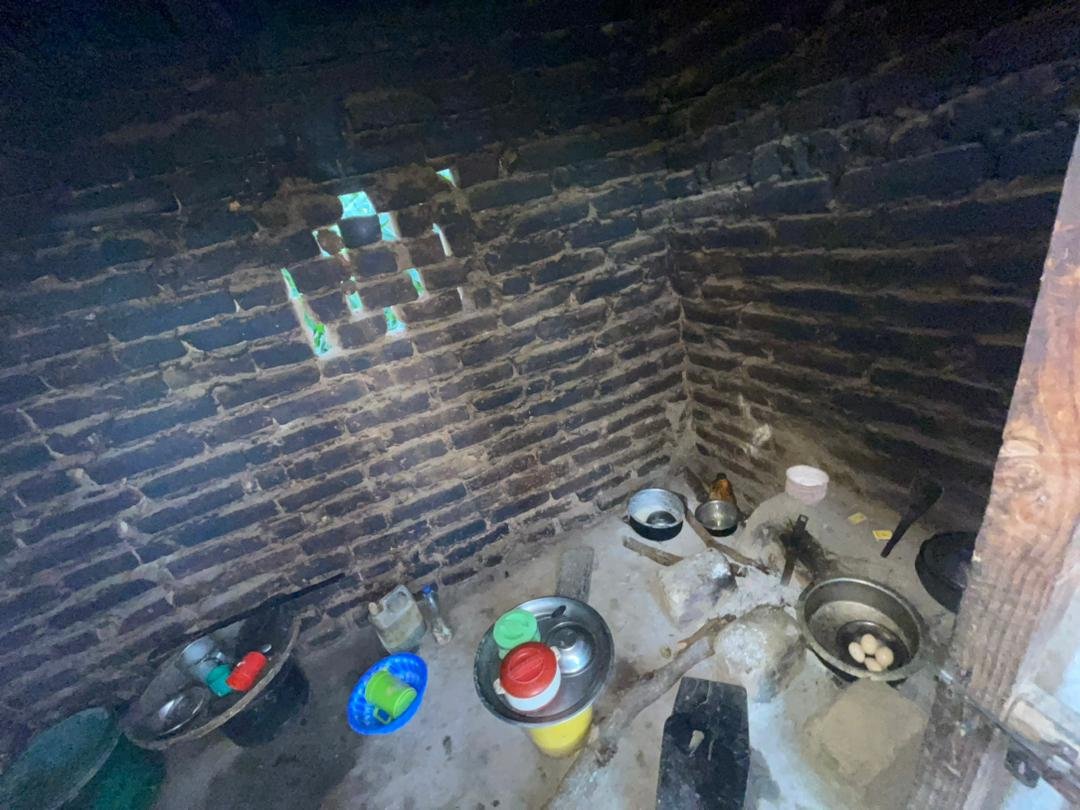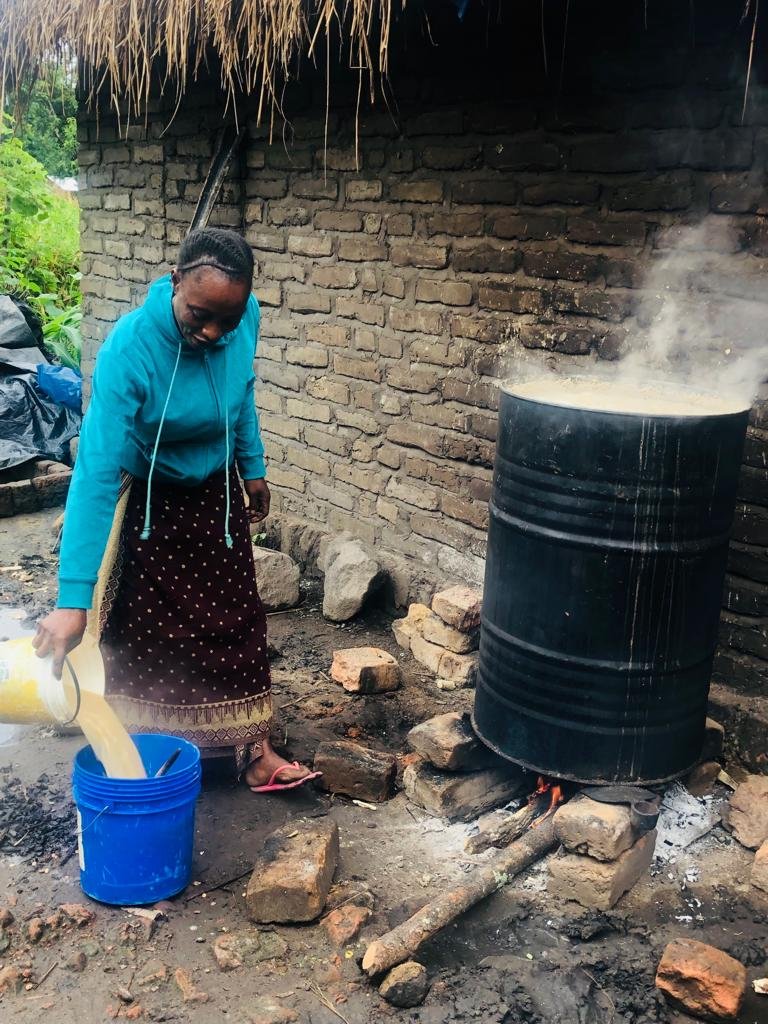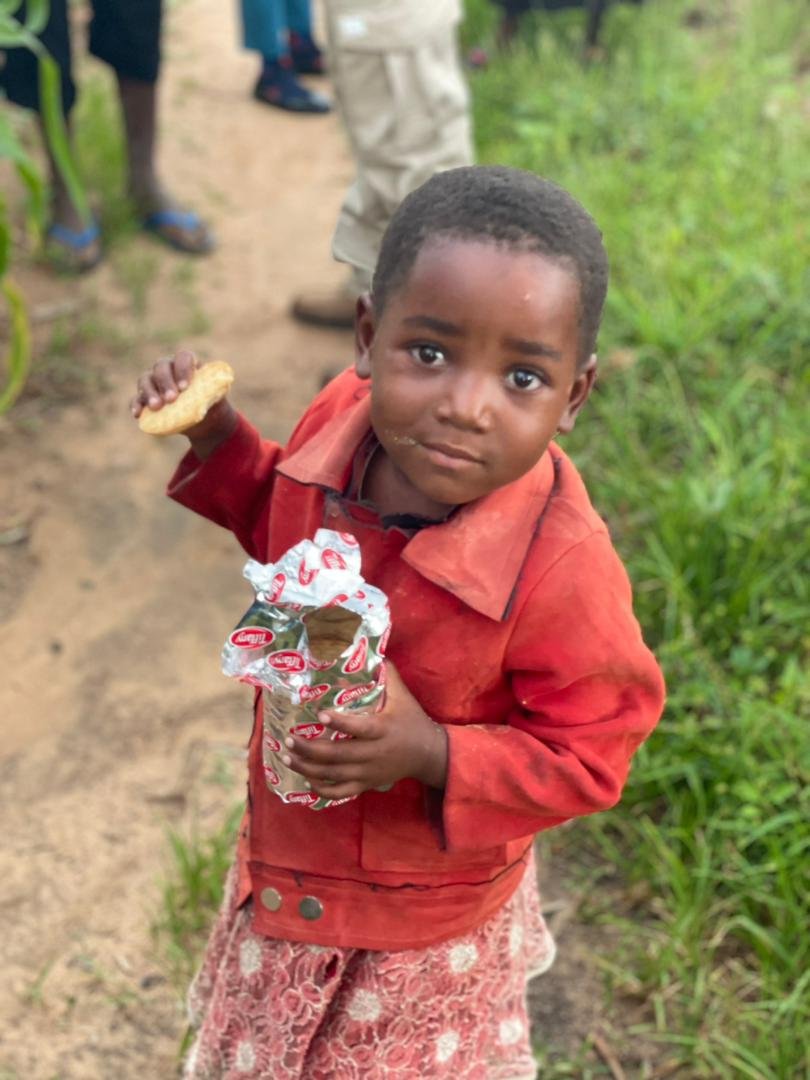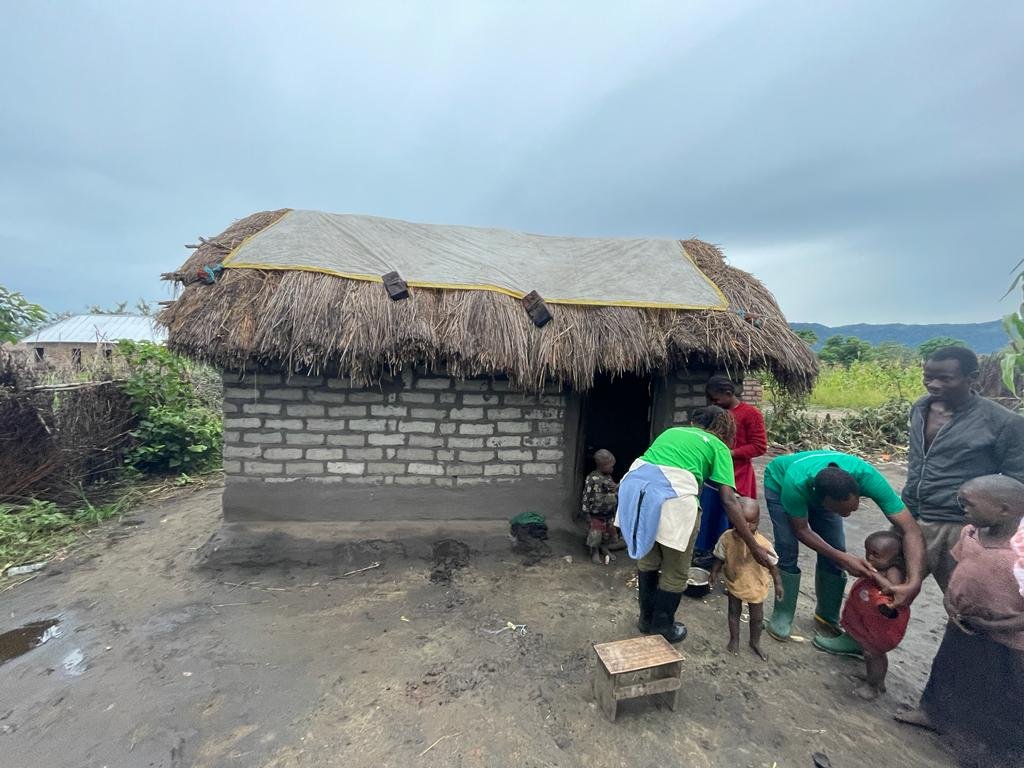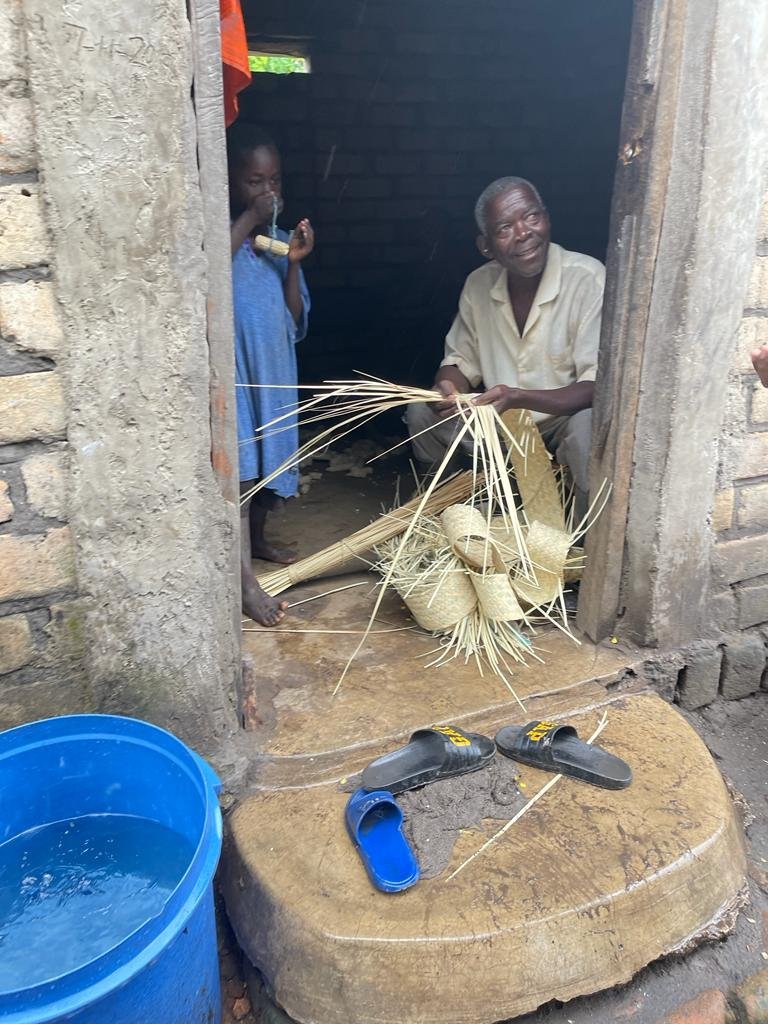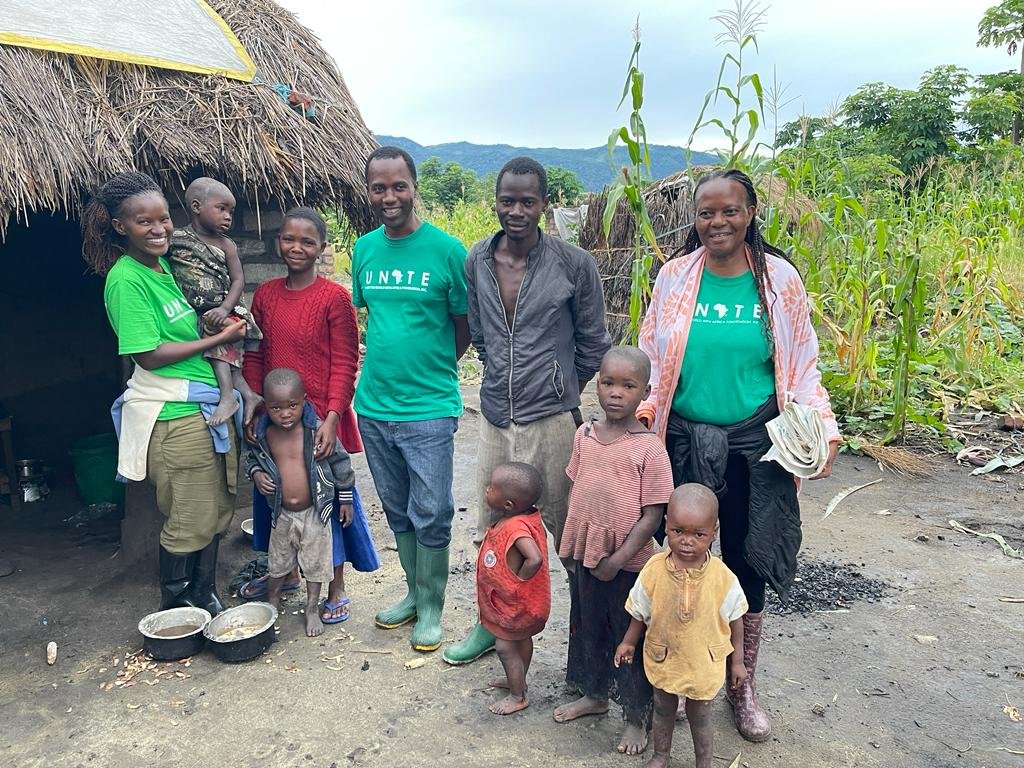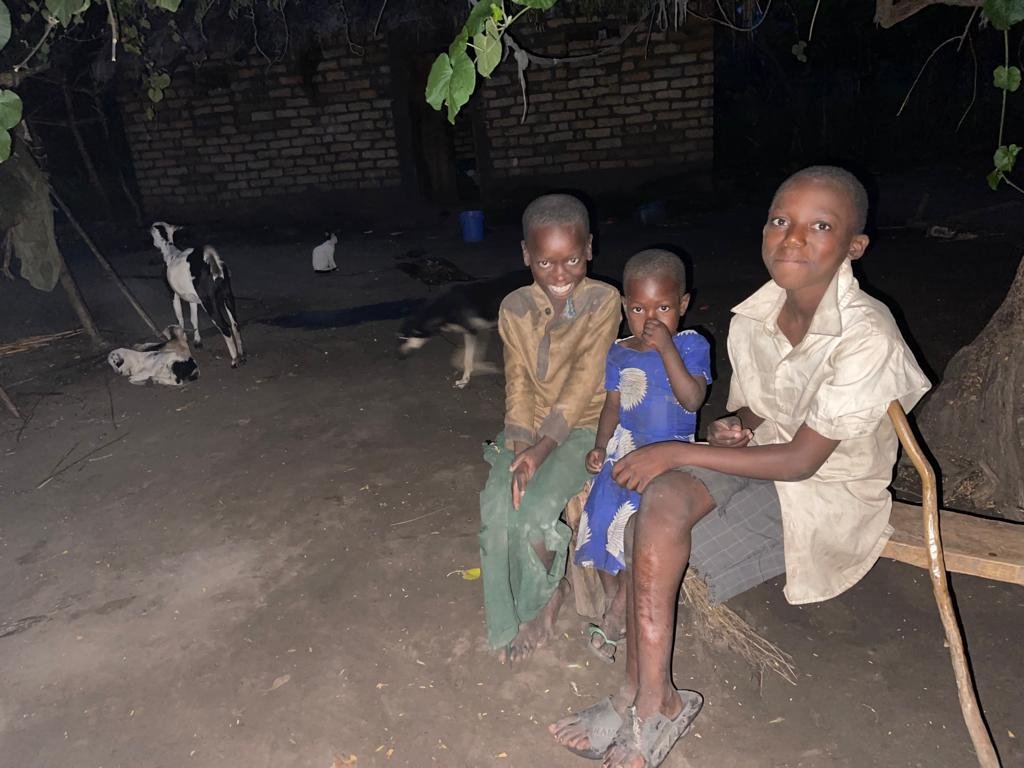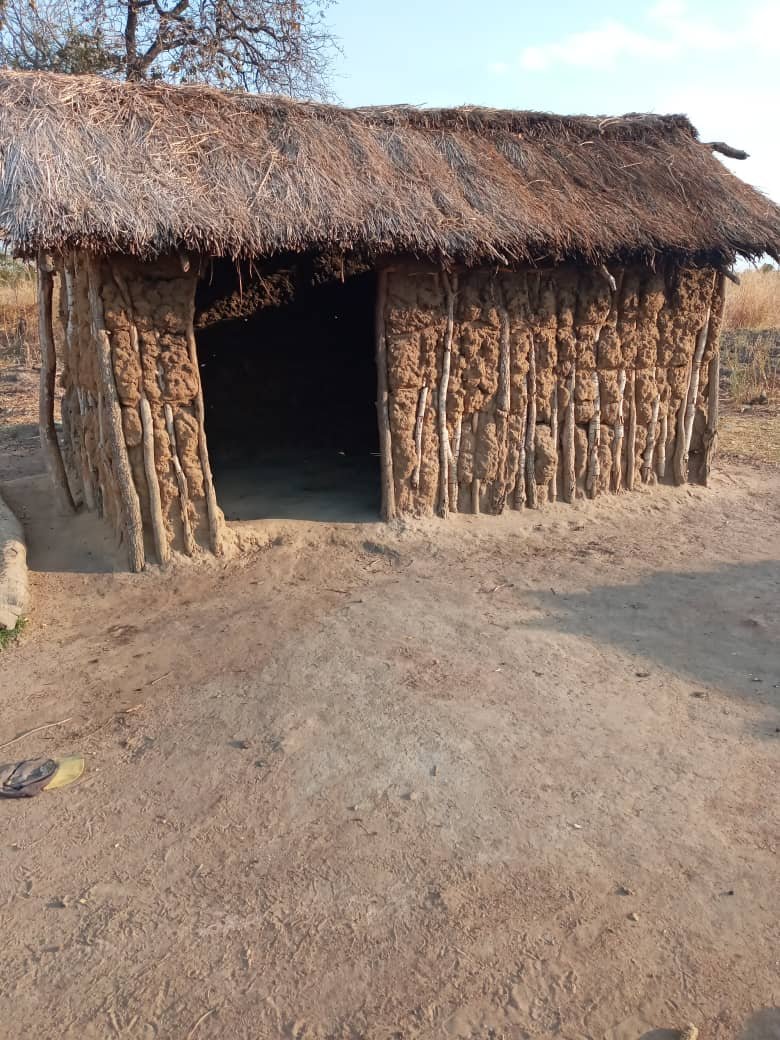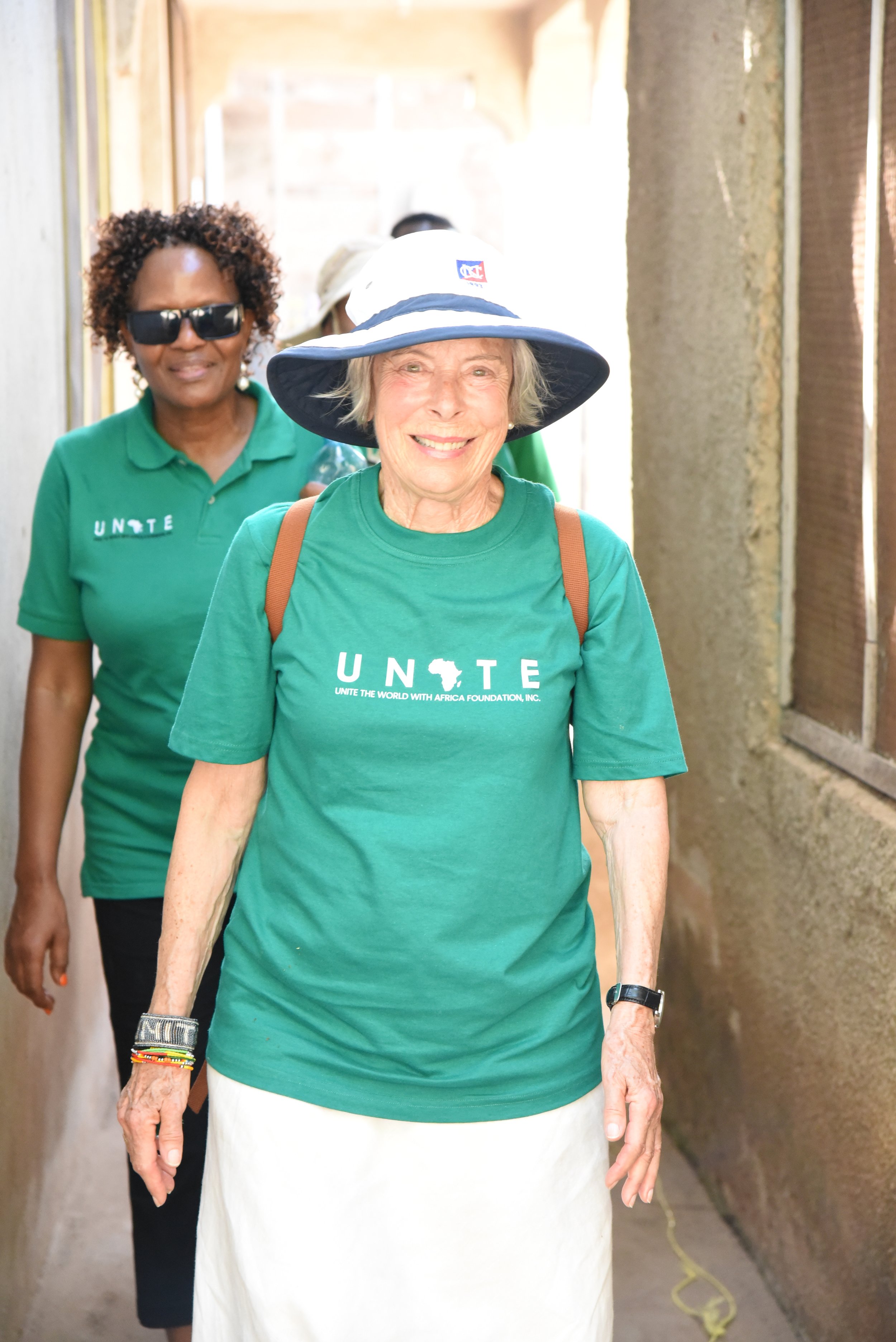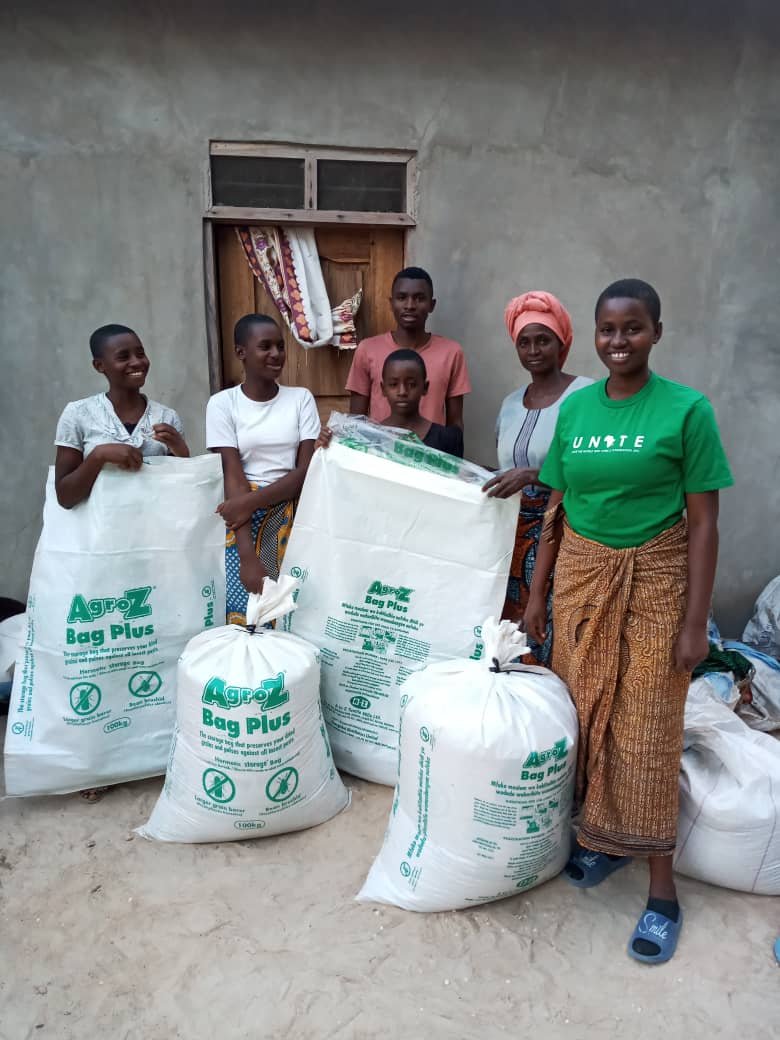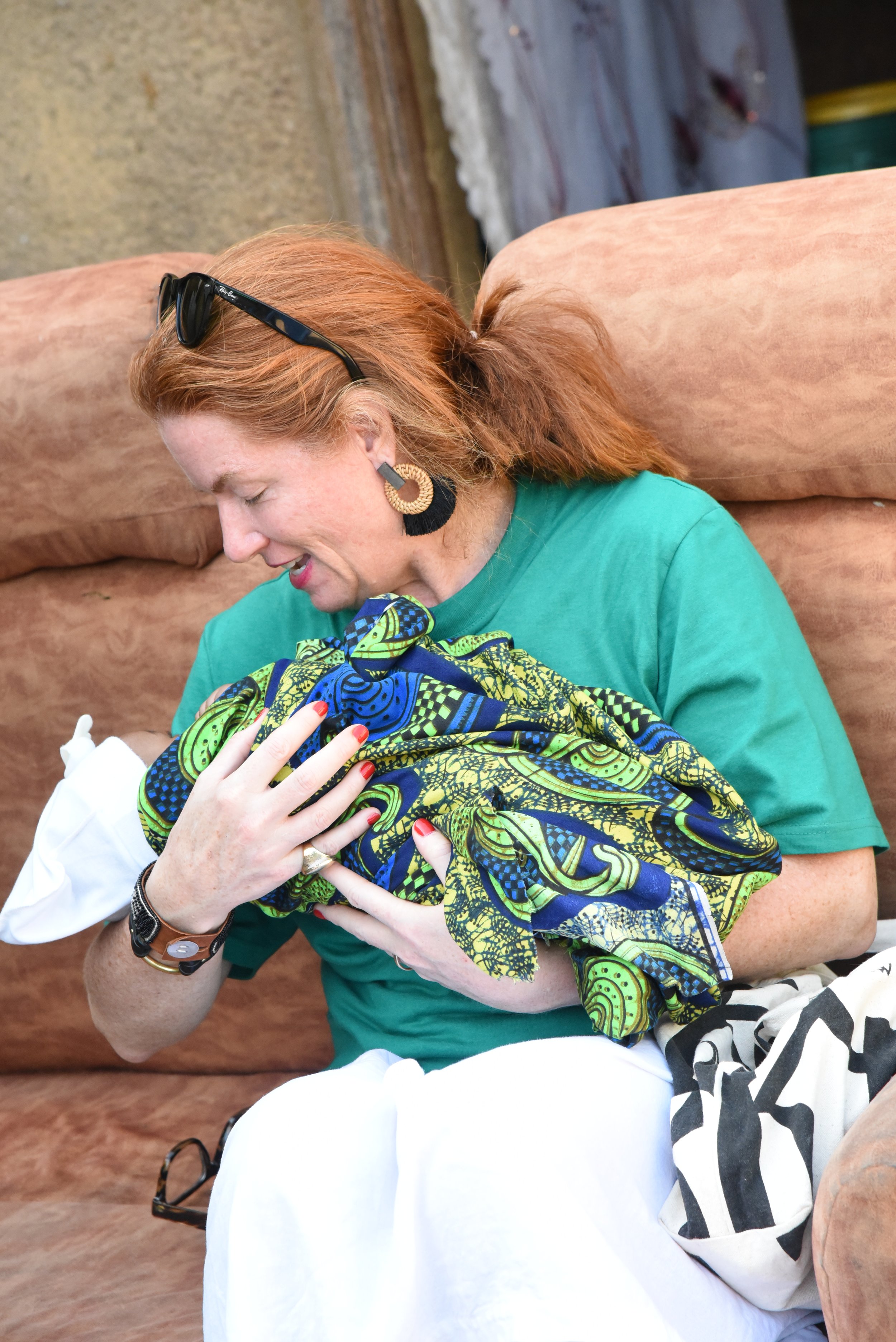“Mzungu… Miguu ya kuku!” “White person… Chicken legs.” Excuse me?
A few weeks ago, my team and I were walking through a neighborhood (pictured above) not far from Unite Food Program (UFP) headquarters in Kunduchi, Dar es Salaam, Tanzania, on our way to visit the homes of a few UFP team members. I had fallen behind, chatting with a friend, and as I passed a group of women sitting in the shade of a tree holding infants and surrounded by little children, they called out, “Mzungu!” “White person.” That was, very clearly, meant for me, so I headed over. It was unusual for any westerners to visit this particular place, so, with my rudimentary Swahili, I did my best to explain why I was there. Their response? “Miguu ya kuku.” “Chicken legs.” Were they calling me chicken legs? Noting my confusion, one woman wearing a faded Just Do It t-shirt pointed a finger toward a closed cardboard box on the ground. I leaned over, unfolded the top, and peered inside. At that moment, I realized that this shady spot in this field littered with plastics was not just a place for these mamas to hide from the scorching equatorial sun, it was their store — their restaurant — and the items inside that box were their single product to sell and, most likely, their sole source of income to feed their children. I pulled out my shillings, shook a few outstretched hands, exchanged a few pleasantries, and walked away holding a few dozen chicken legs, feet still connected and all.
Anne with Unite Scholar Mercy Chacha and her mother bearing gifs of rice and maize from Unite Food Program.
Our Unite “family” is large and growing fast. We have 77 scholars, 23 teammates, 10 Brave Widows, 300 small-scale farmers enrolled in the Unite Food Program social impact program, more than 1,000 Unite Club members, and dozens of Warrior for Change loan recipients who come from nearly every district of the country and represent dozens of tribes. Whenever possible, I make it a point to visit these individuals in their home environments. I want to meet their families, see how they live, understand their challenges, and learn more about what — and who — is important to them. By taking the time out of busy schedules and investing the resources necessary to reach their homes (most of which are in extremely difficult-to-access locations), we demonstrate our respect and commitment, and, most importantly, we build trust.
Over the past few weeks, my team has traveled across Tanzania (a country that is twice the size of California) penetrating some of the most remote regions to visit Unite Scholars at their homes. When dirt roads gave way to narrow paths, vehicles were abandoned for motorcycle taxis. When paths became unpassable, critical last-mile journeys were made by foot.
Spending time with our Unite Scholars at their homes; meeting their mothers, fathers, grandparents, and siblings; delivering gifts of food, cooking oil, soap, and more; answering important questions about what is Unite, what are our intentions, commitments, and expectations; drinking tea and eating together; telling stories; and sharing laughs is all part of what makes Unite different. Unite is human-centered. Our people are our passion. We are tireless in our commitment to learn, serve, educate, and empower, and we know that building trust is critical.
During these home visits, we often bear witness to suffering that perhaps our hearts would rather not see. But alongside despair can be found hope and potential. Our job is to identify opportunities where there may, at first glance, appear to be none; focus our energies there; and always, always follow through.
Unite Program Director Anty Marche purchasing spinach from an enterprising mama outside the rented room of a Unite Food Program team member.
As we journey to and from these home visits, we encounter neighbors and villagers who question who we are. (We certainly stand out all wearing our matching signature green Unite T-shirts). Inevitably, we are presented with various homegrown and homemade items for sale… from bananas, spinach, tomatoes, grilled corn, and charcoal to the more exotic guinea pigs, cow intestines, hoofs, and brains; grilled grasshoppers; boiled pigs feet; fried sardines; and peppered chicken legs. As often as possible, we engage and buy. Shopping the makeshift storefronts of enterprising mamas is an activity my team and I prioritize. Whether we like or even want what they have to sell… the exchange matters. To them and to us. By supporting these women in even the smallest of ways, not only do we help them feed their families but we earn the community’s trust, which in turn helps our scholars (and teammates) to succeed. No one can thrive without the full support of family, friends, and community. We understand this, and therefore strategically do all we can to ensure win-win-win outcomes over time.
Below please find a gallery of photos from a few recent home visits. Living conditions range from extremely challenging to dire. Unite still has scholars in need of sponsorship and support. To make a tax-deductible donation to help support our work, click the link below.


